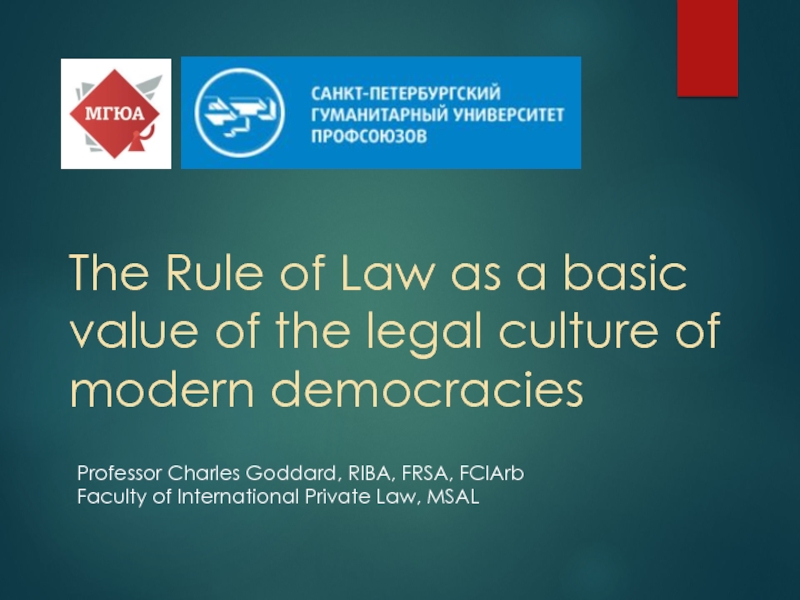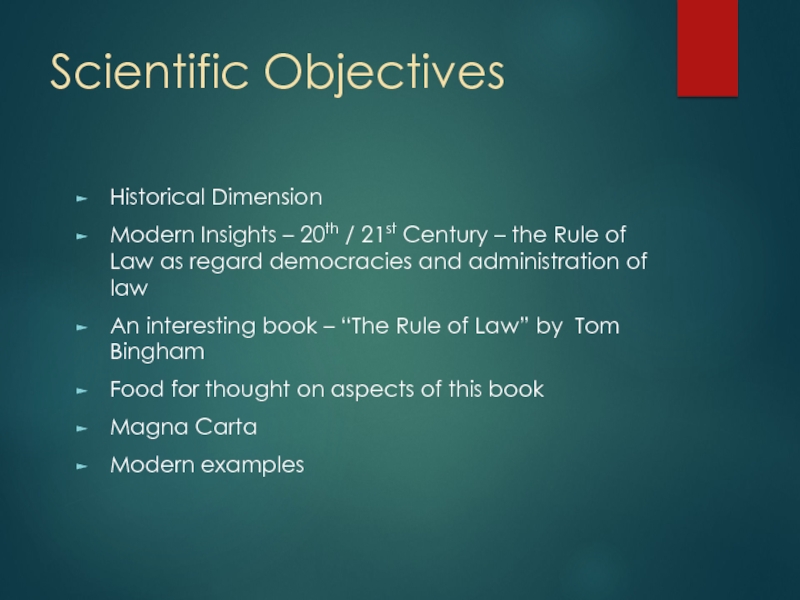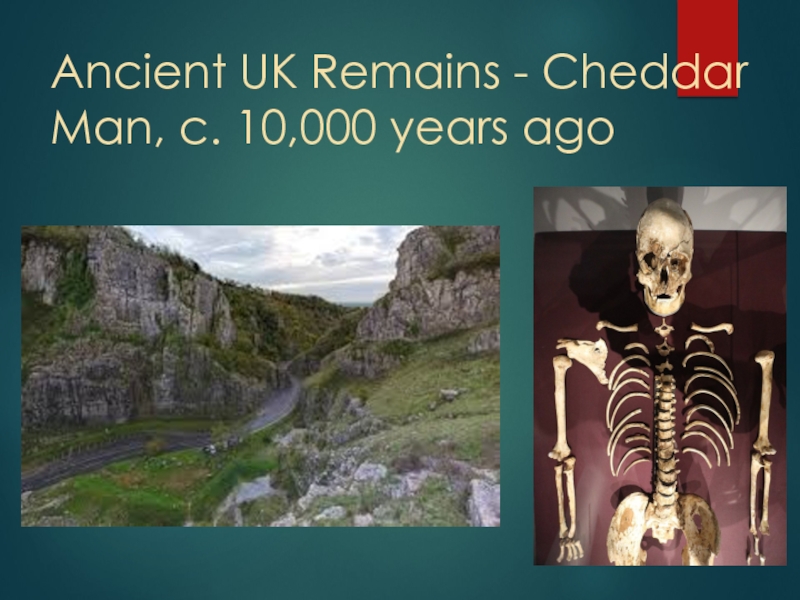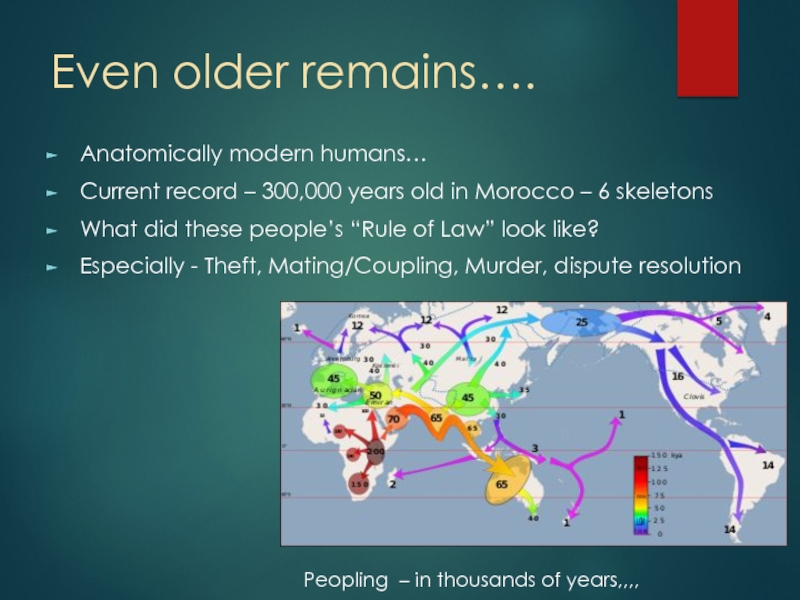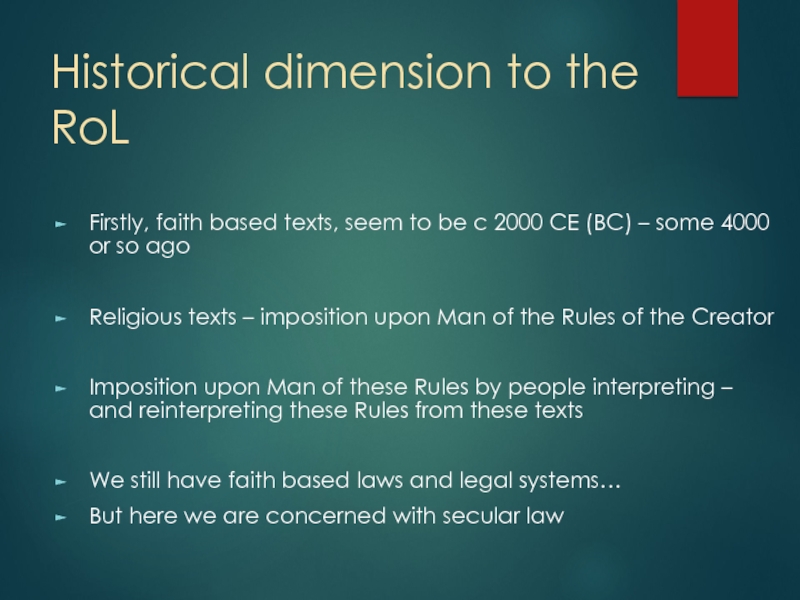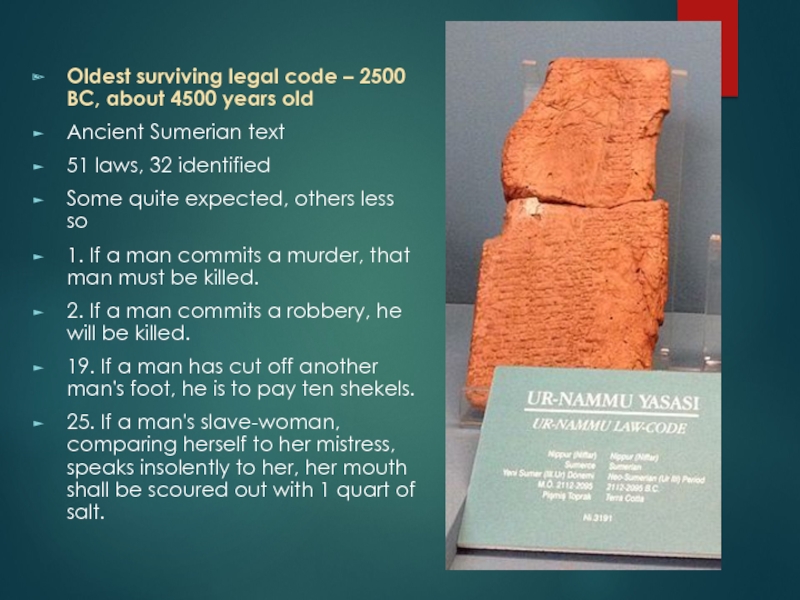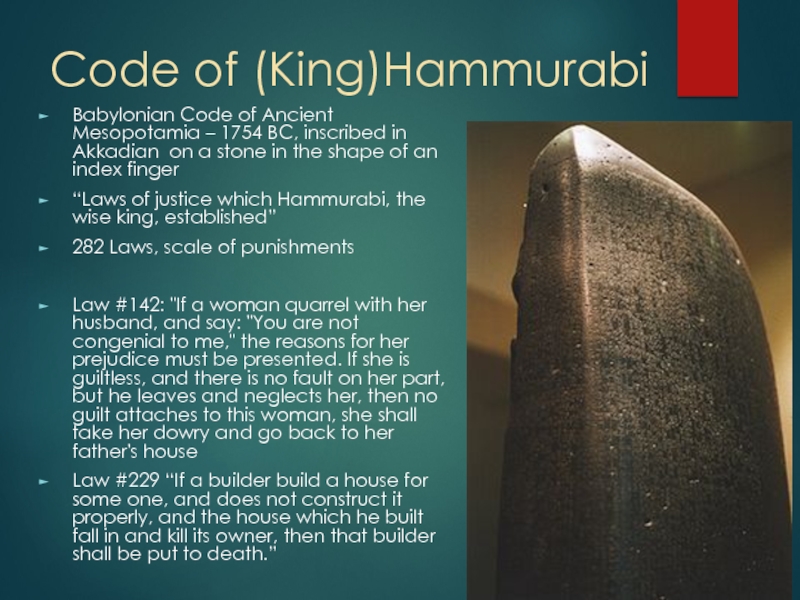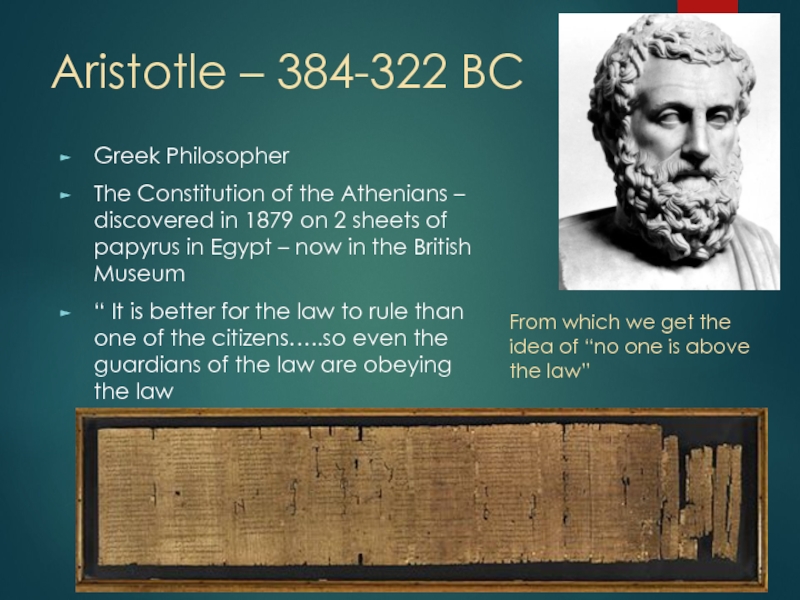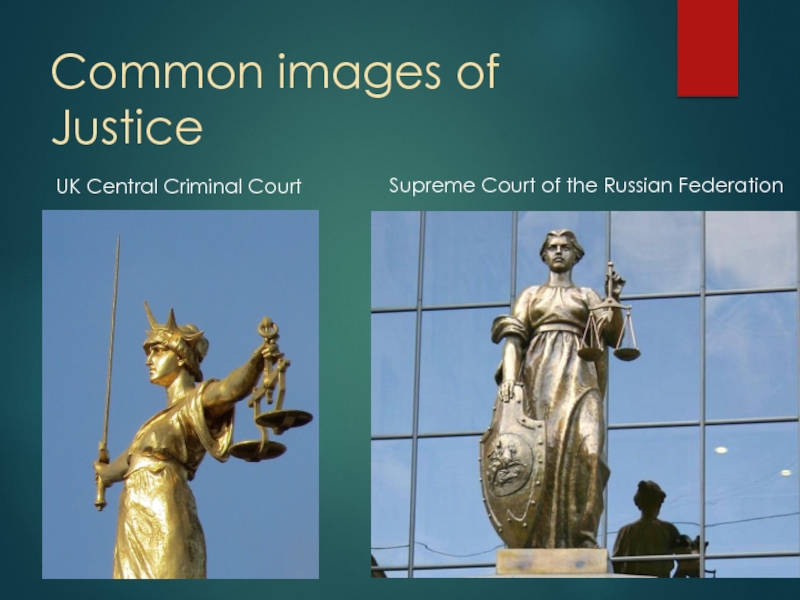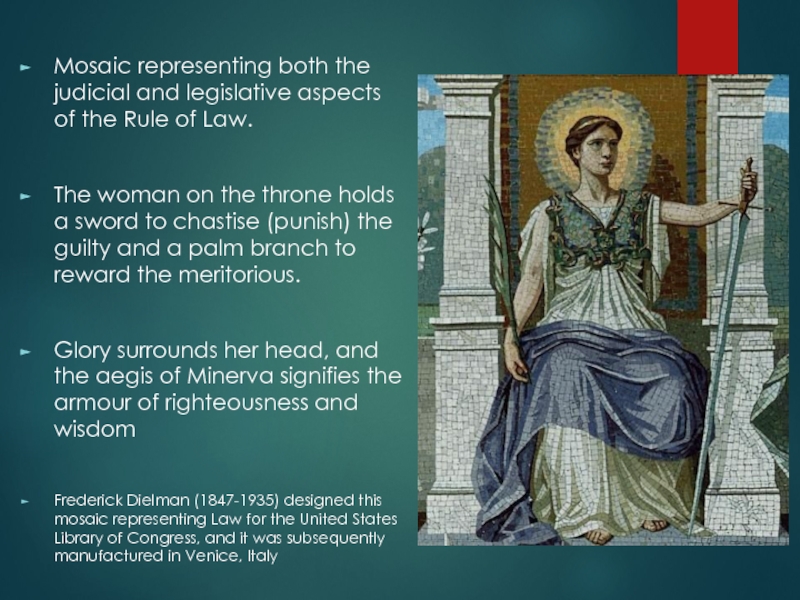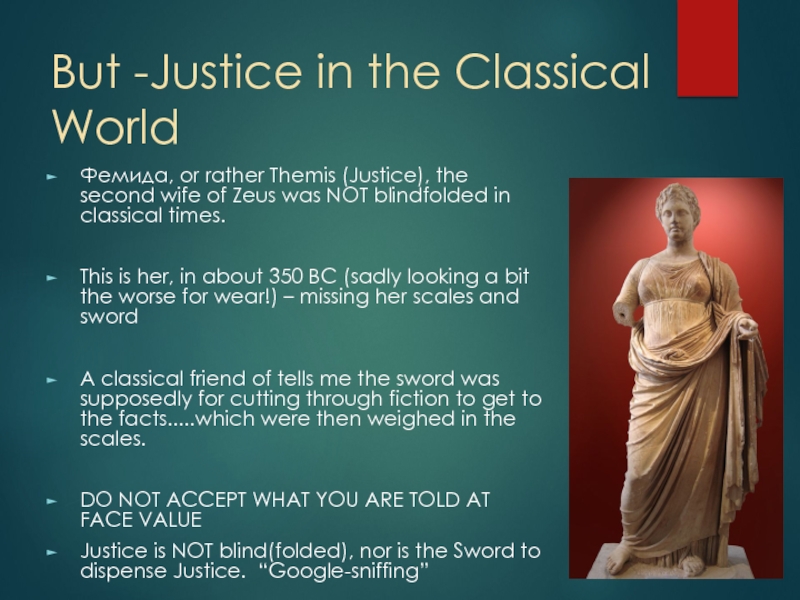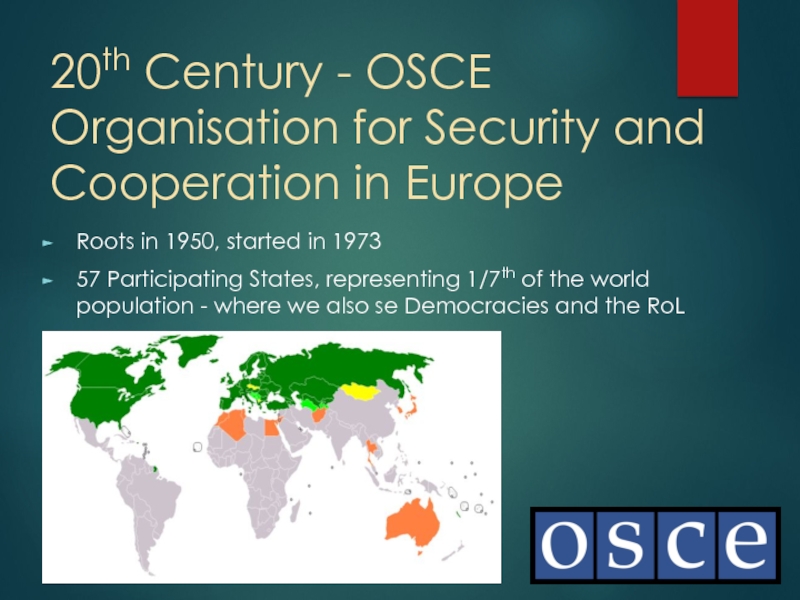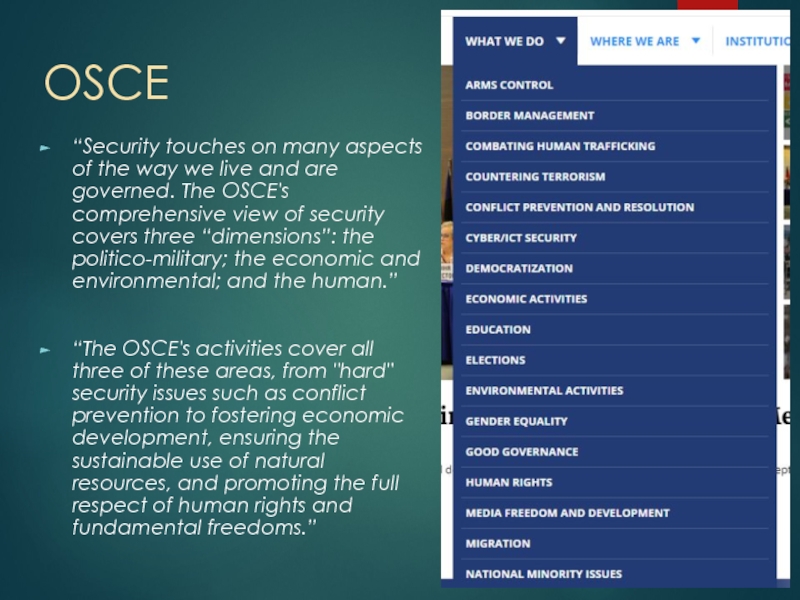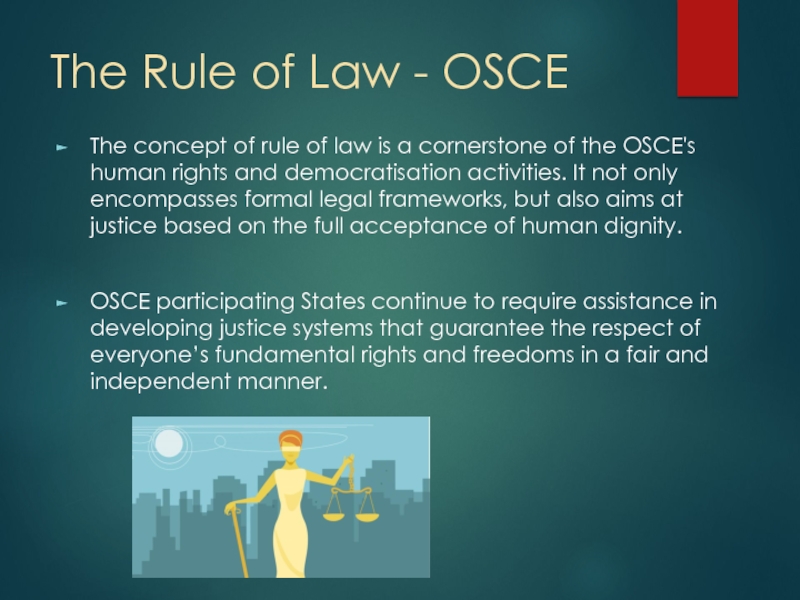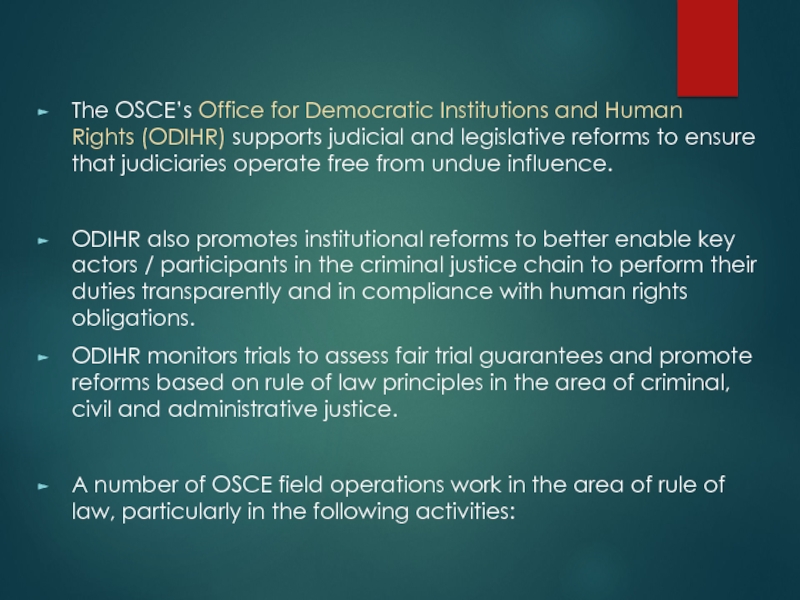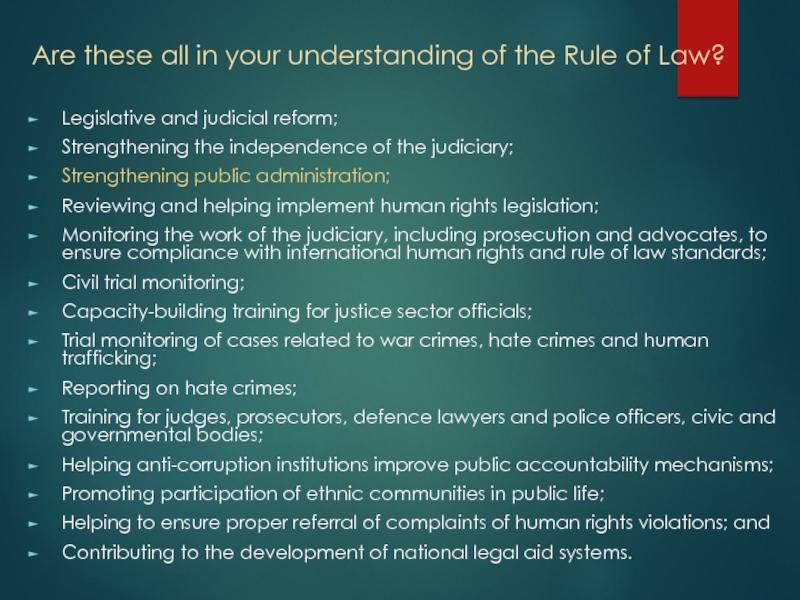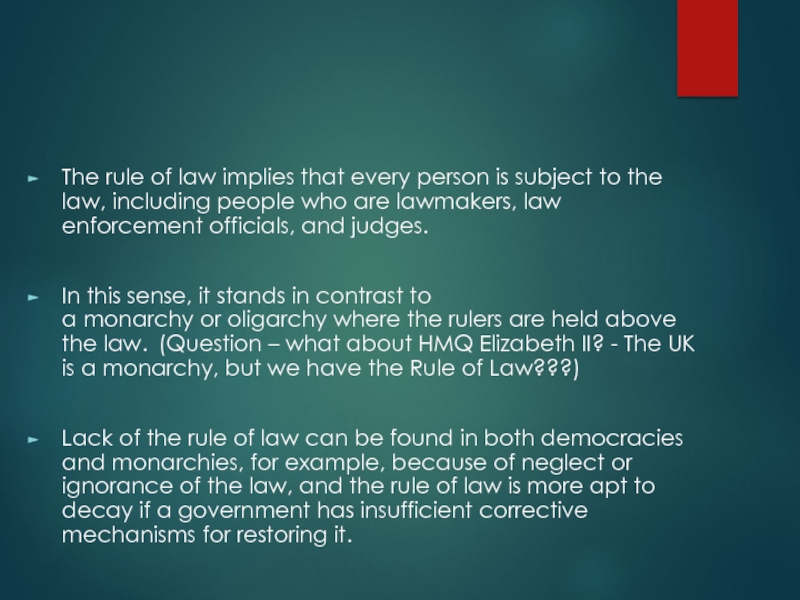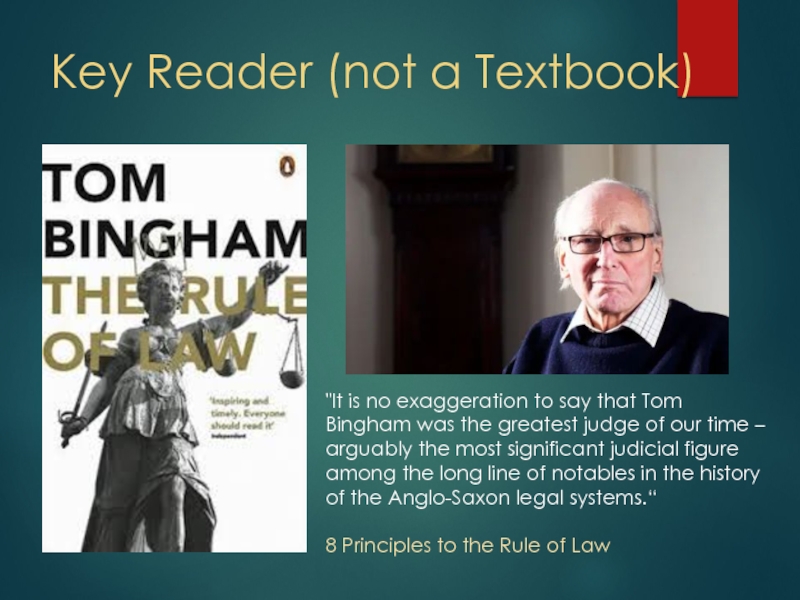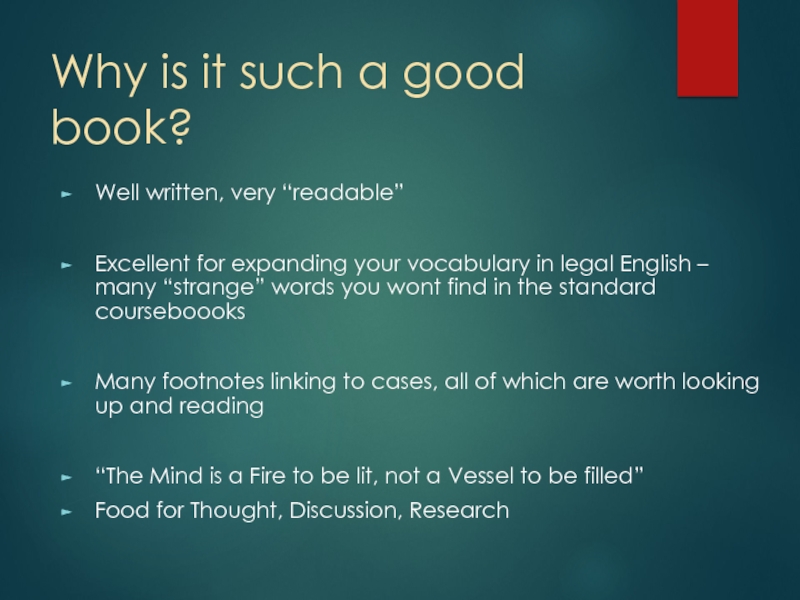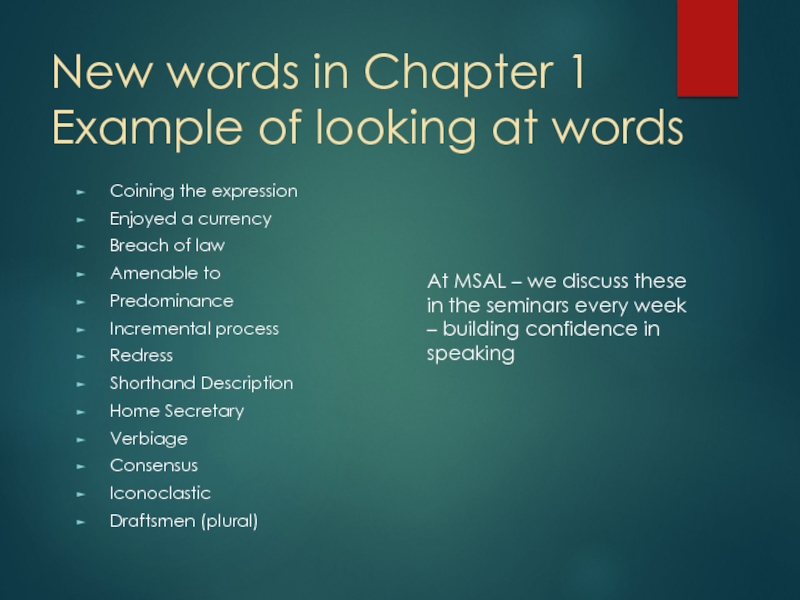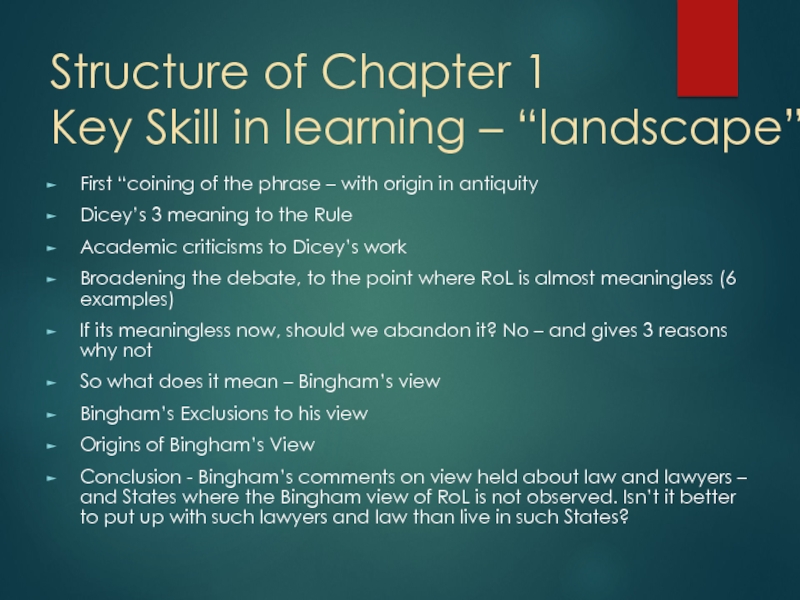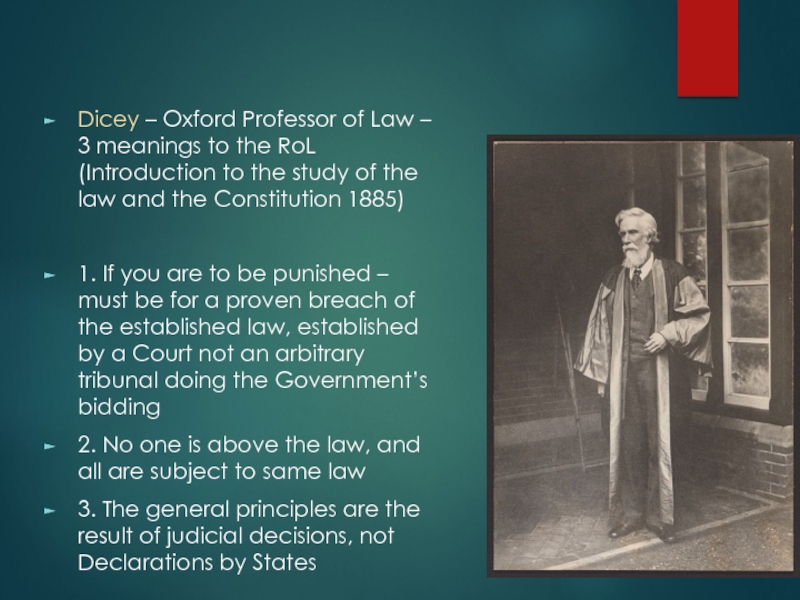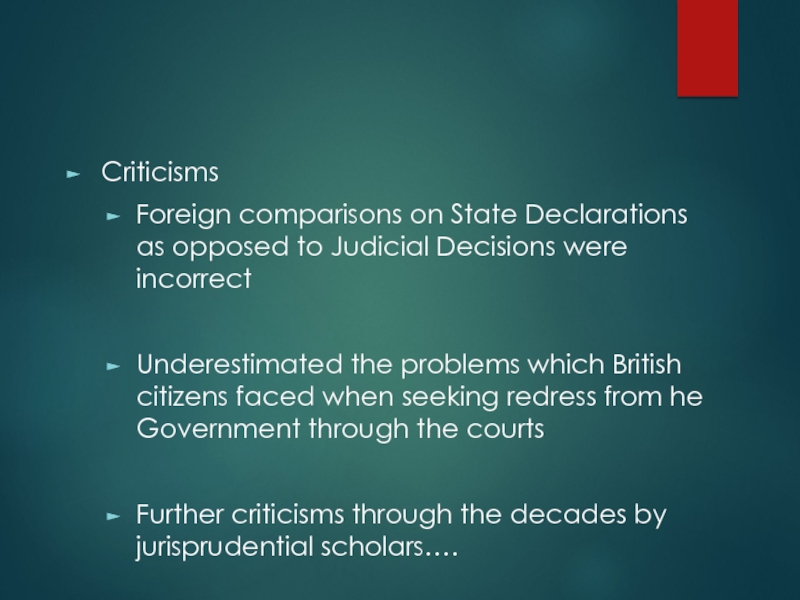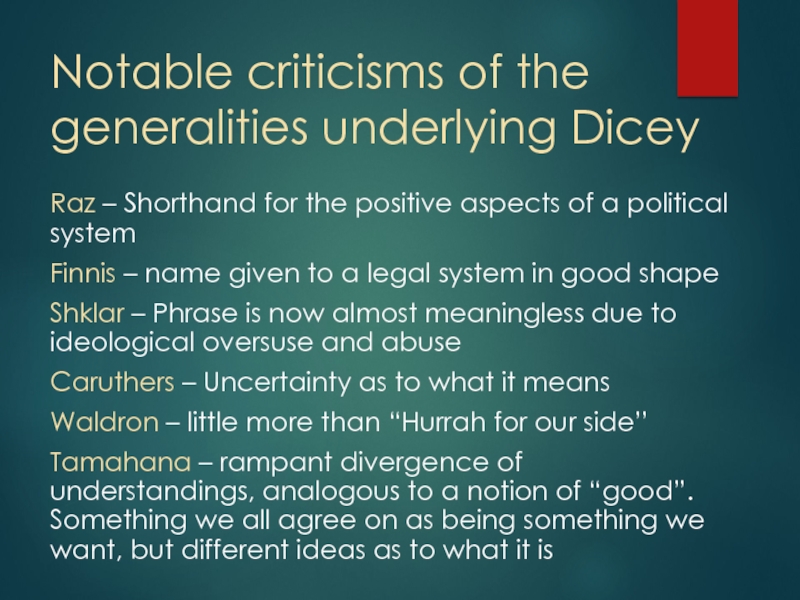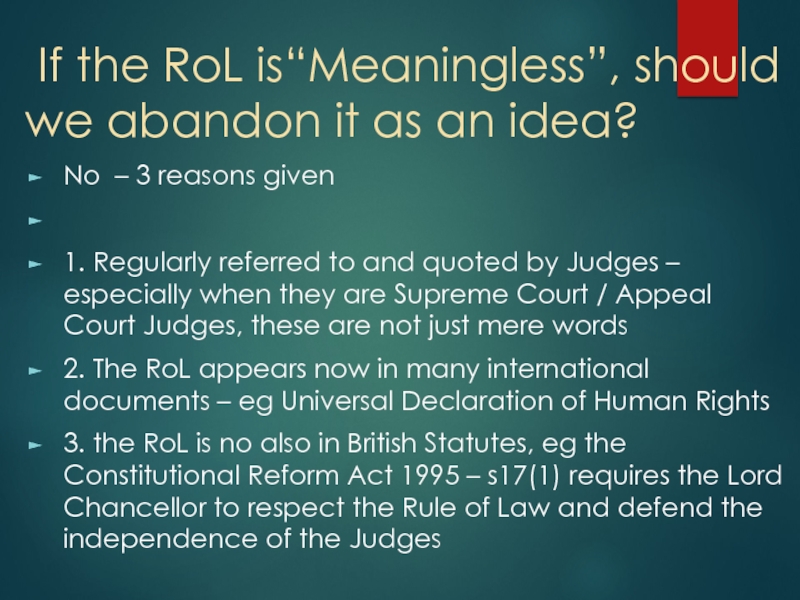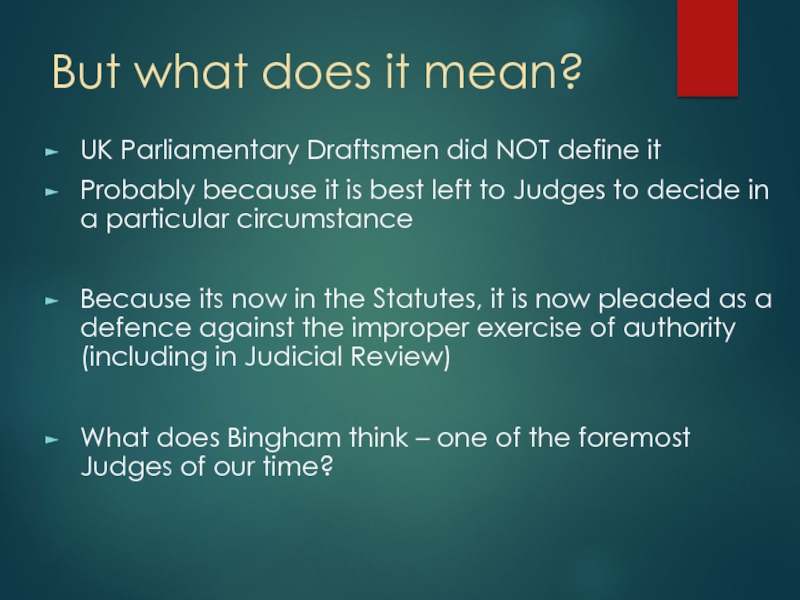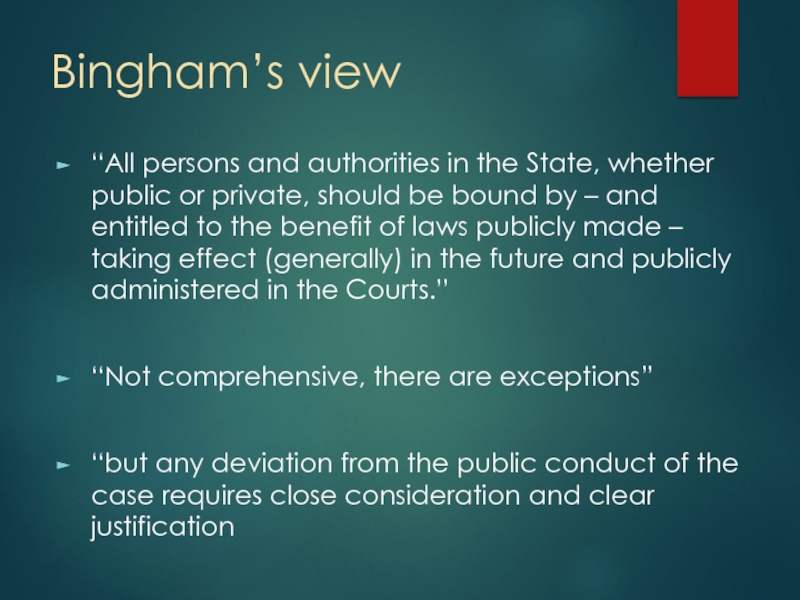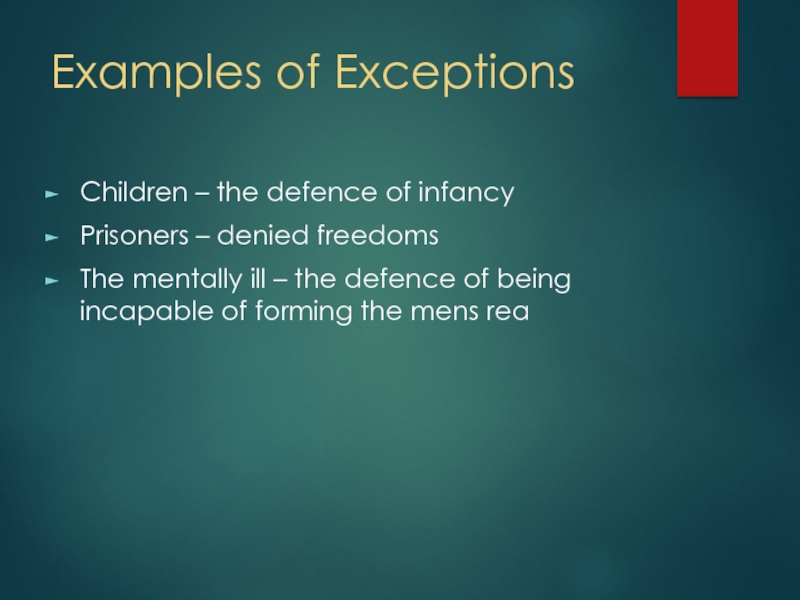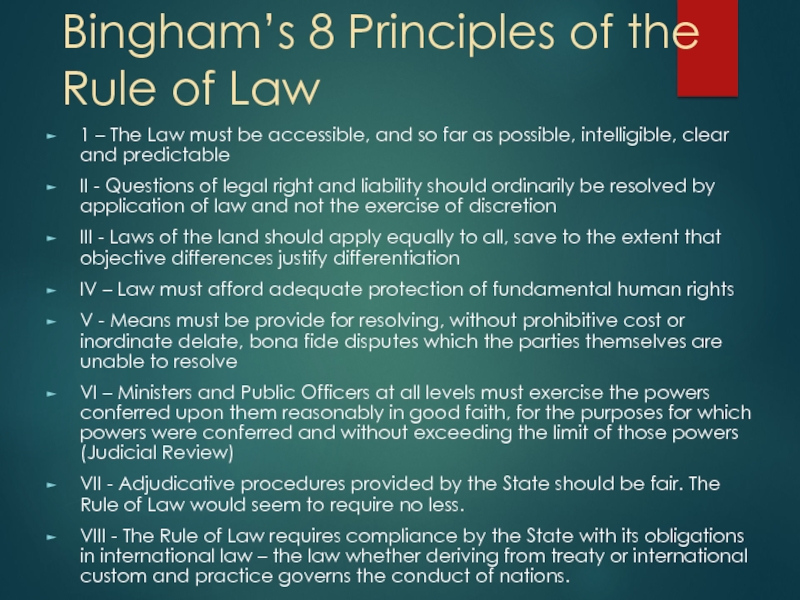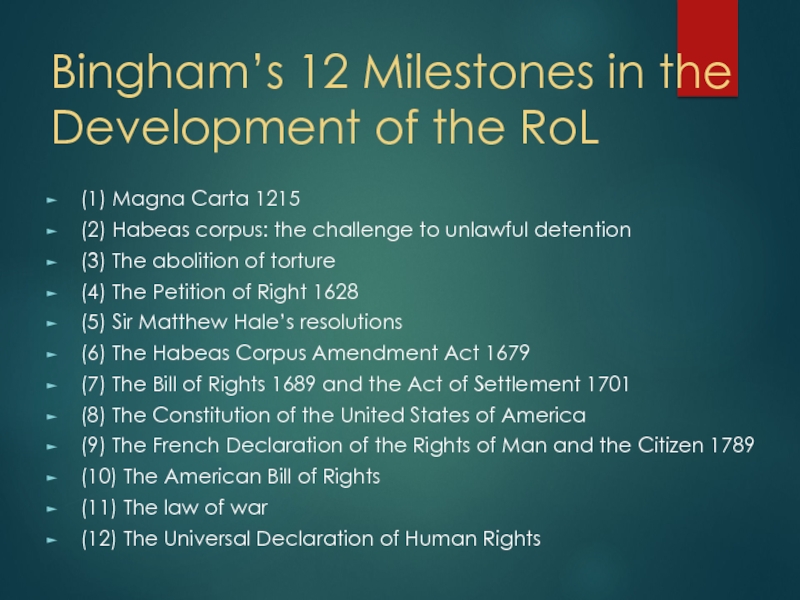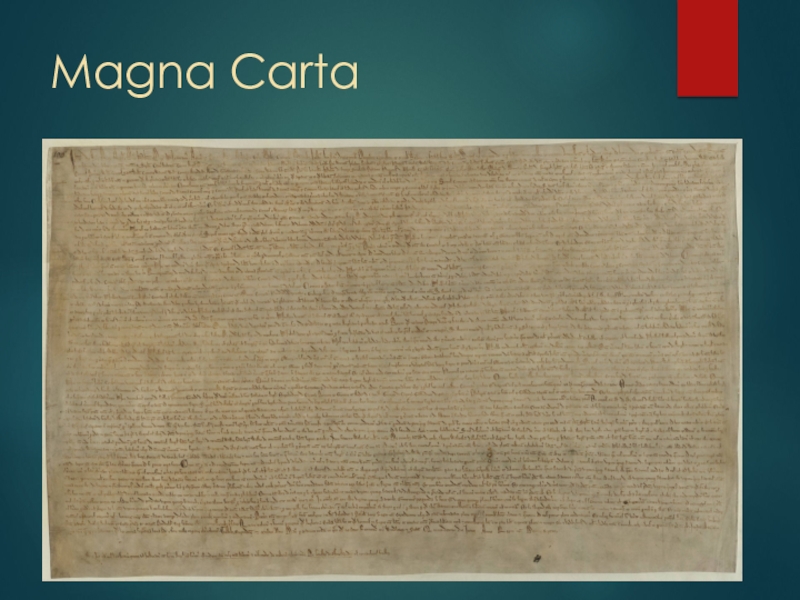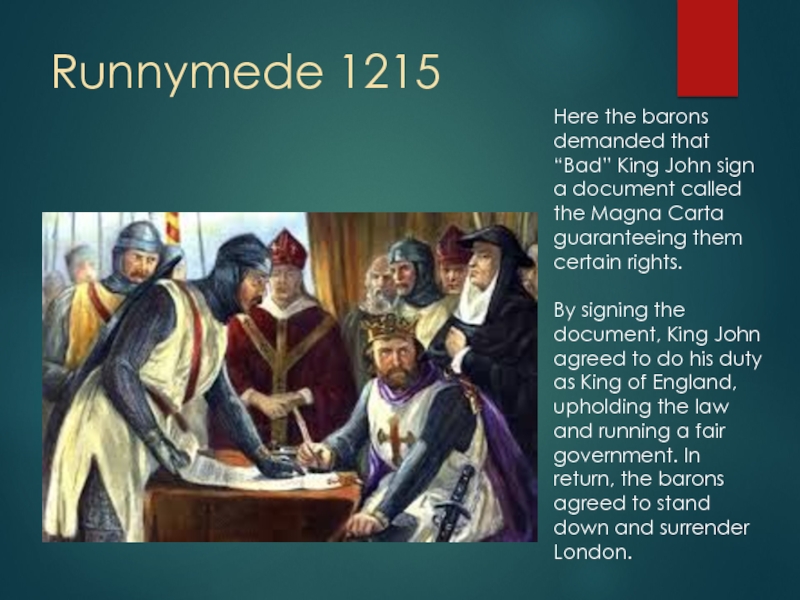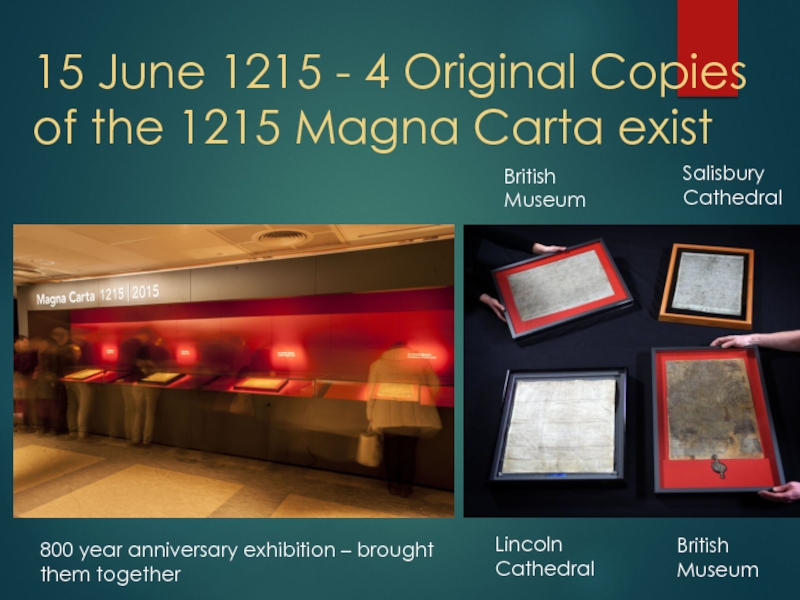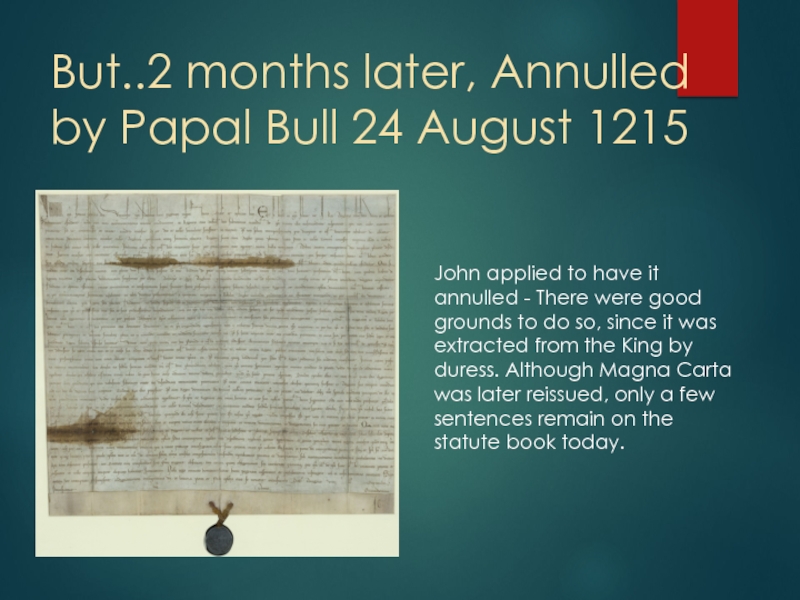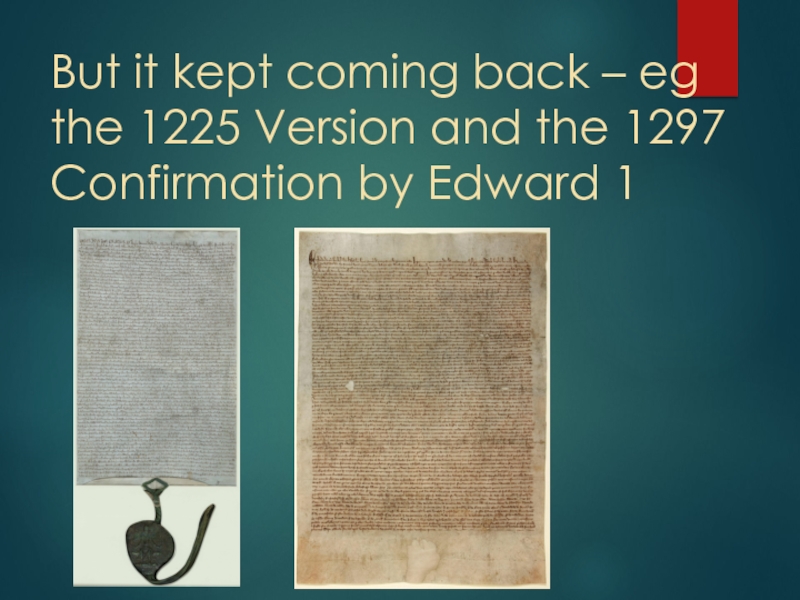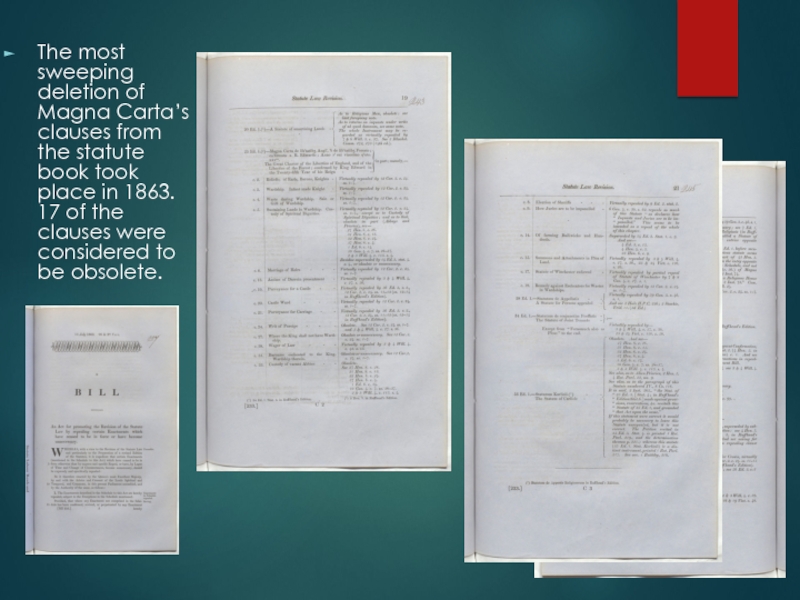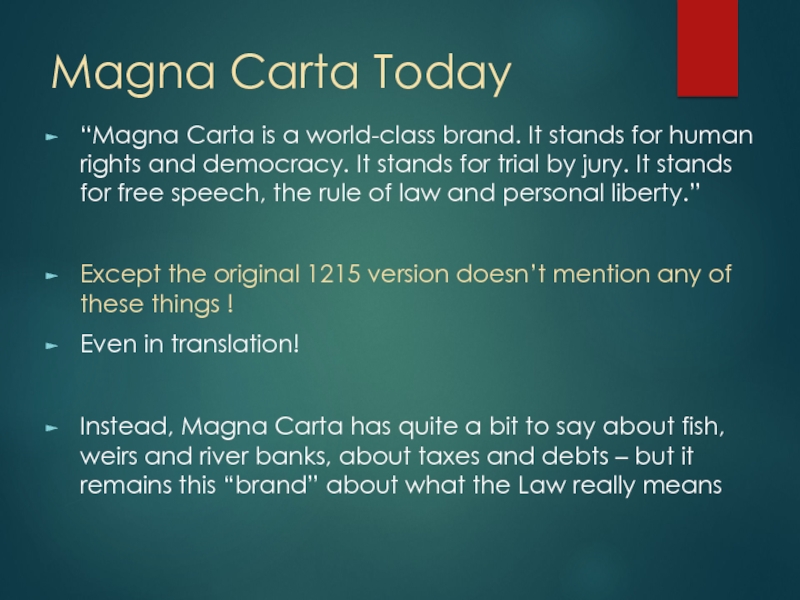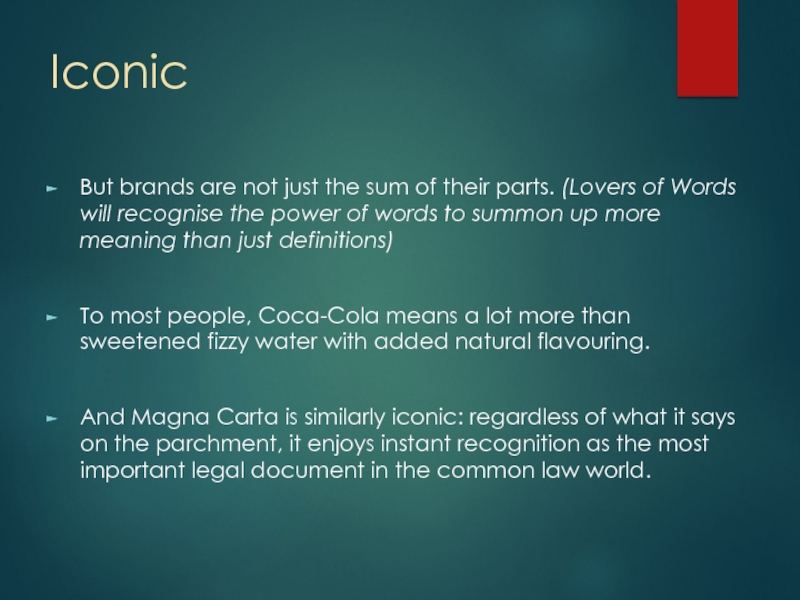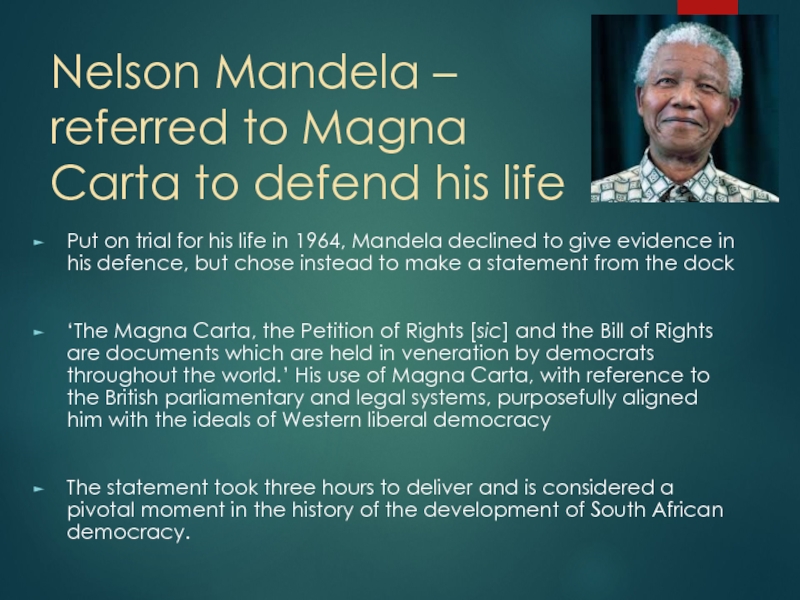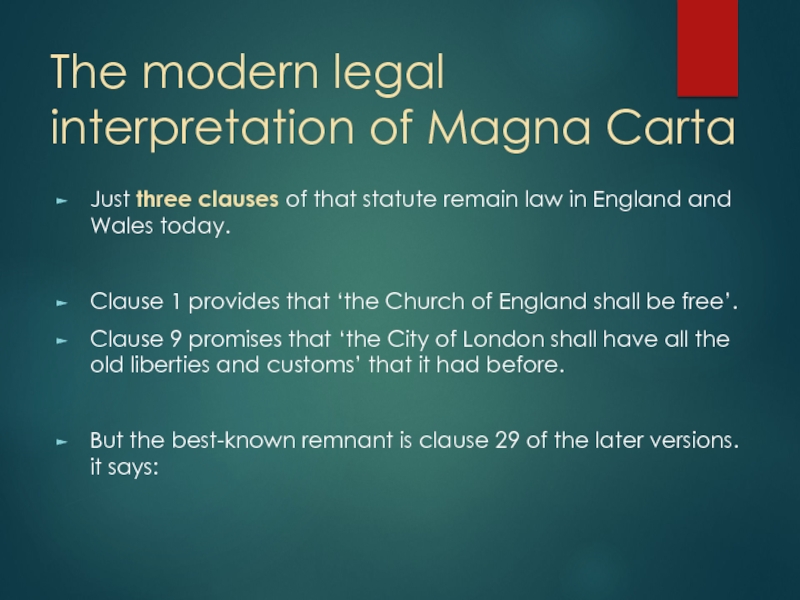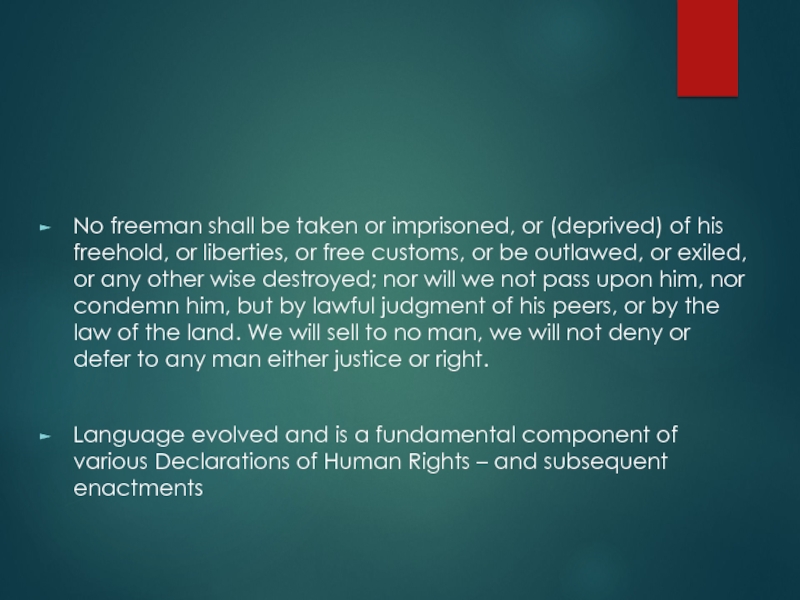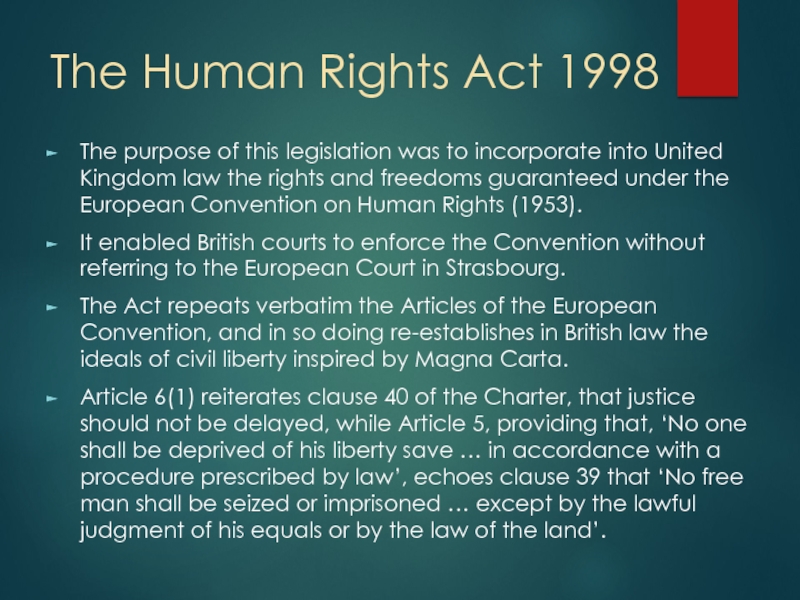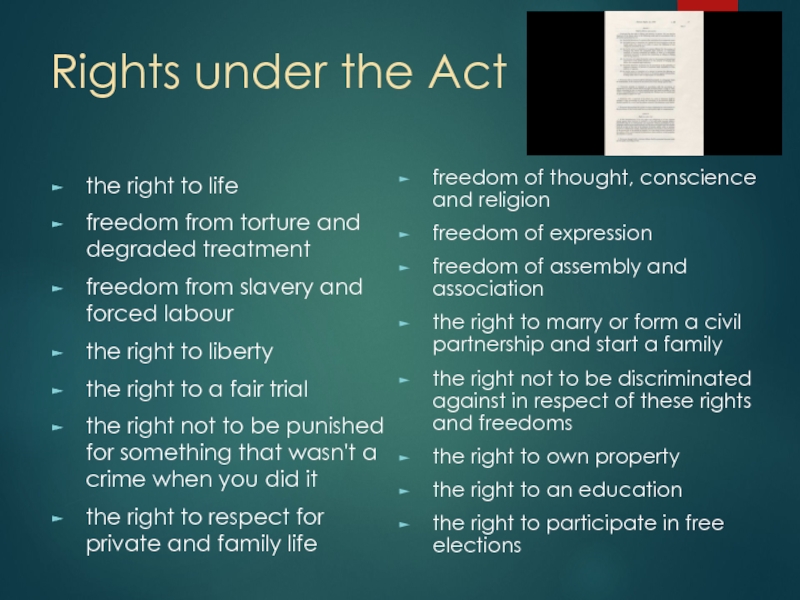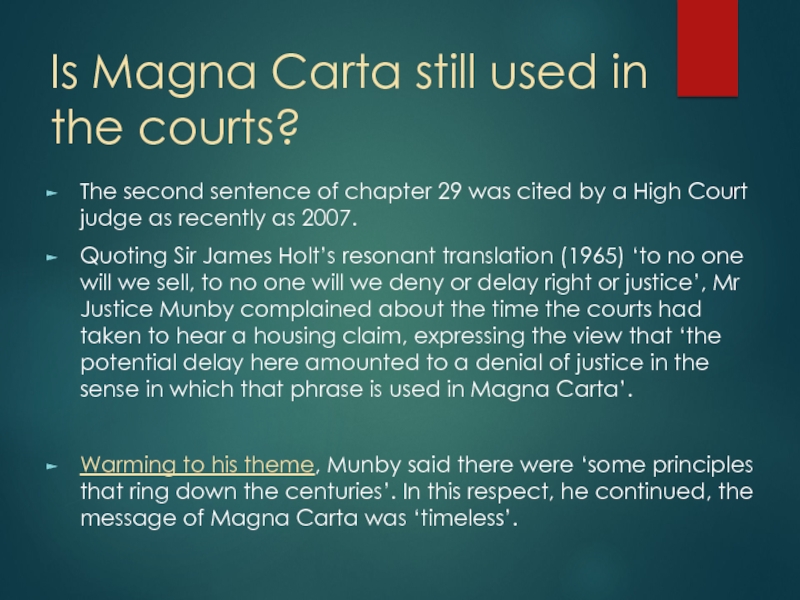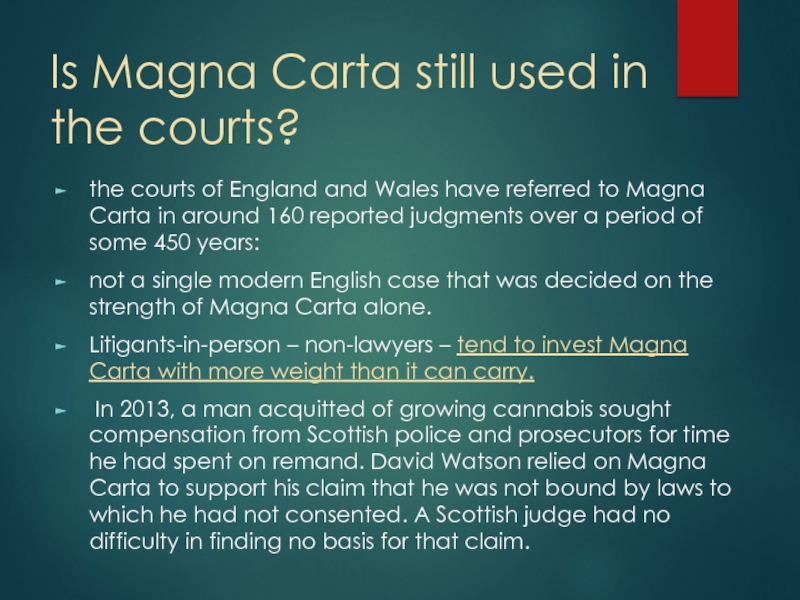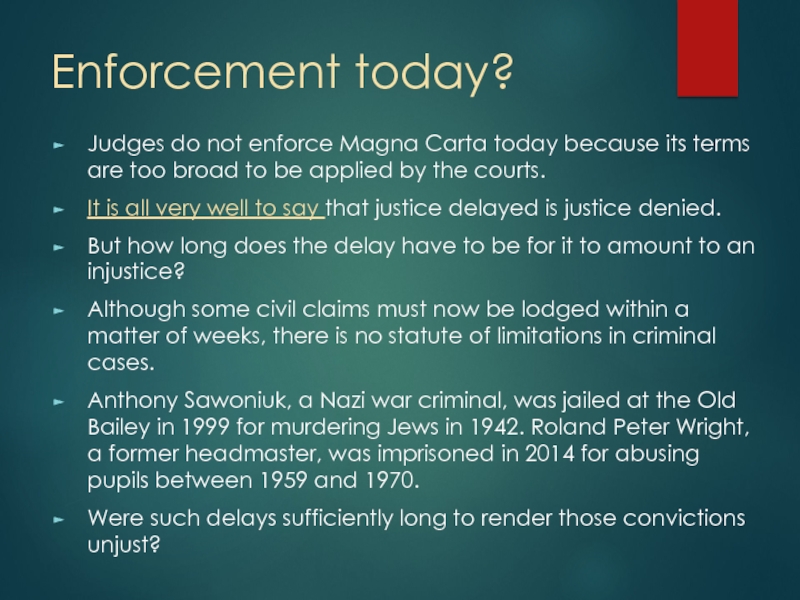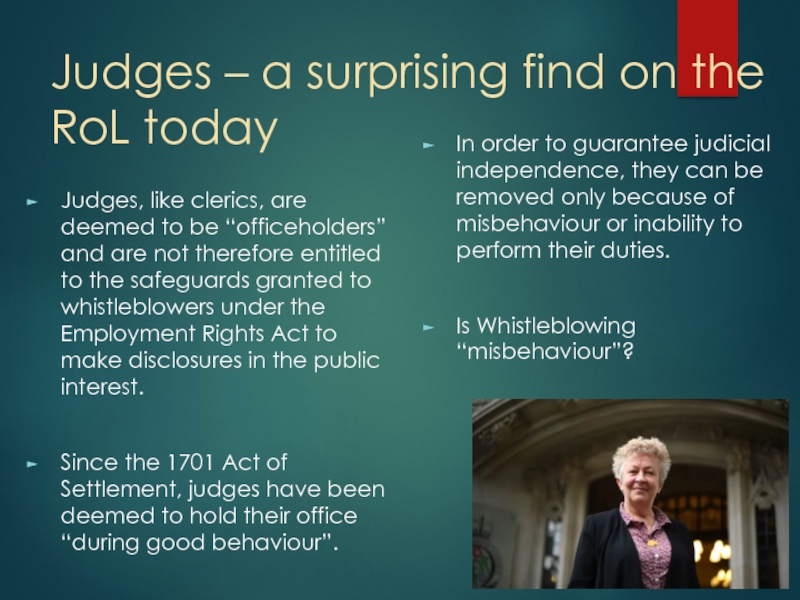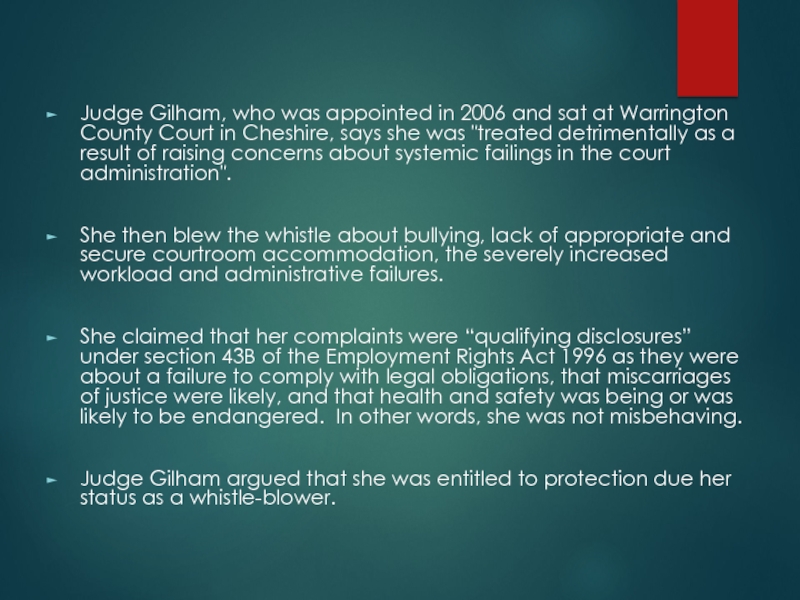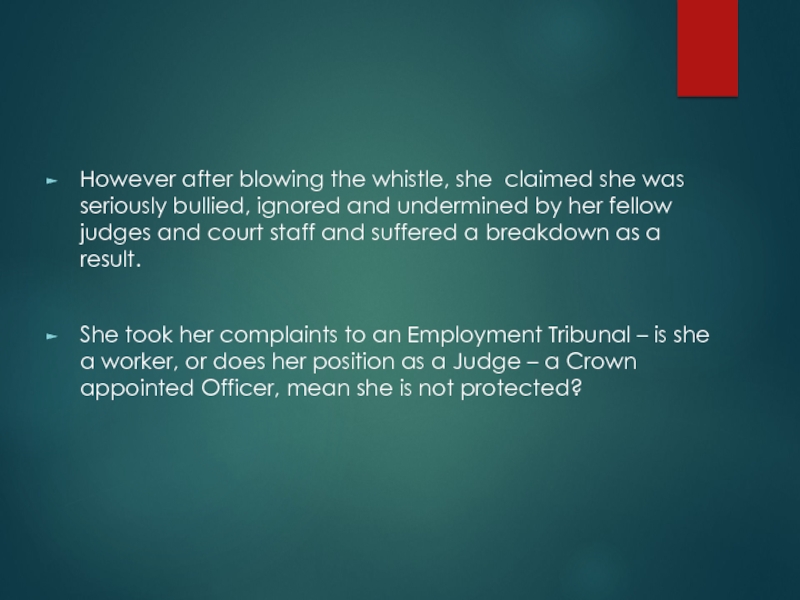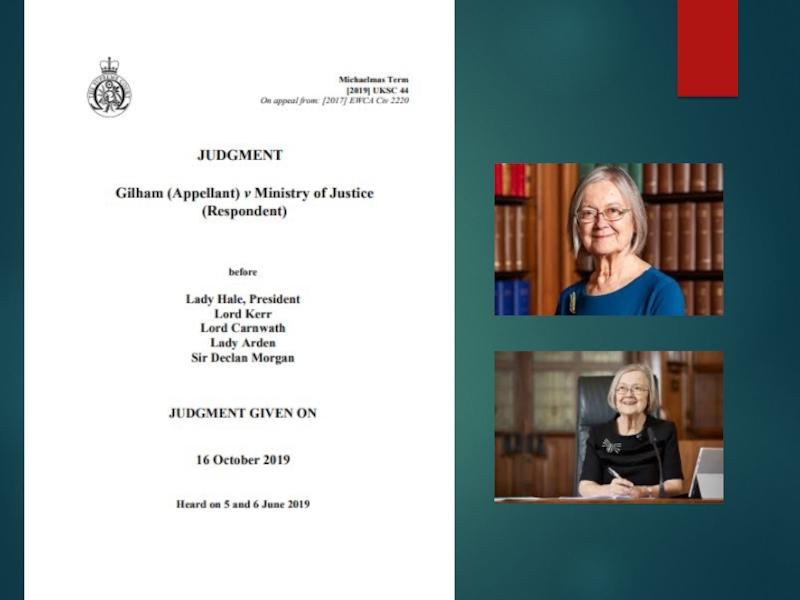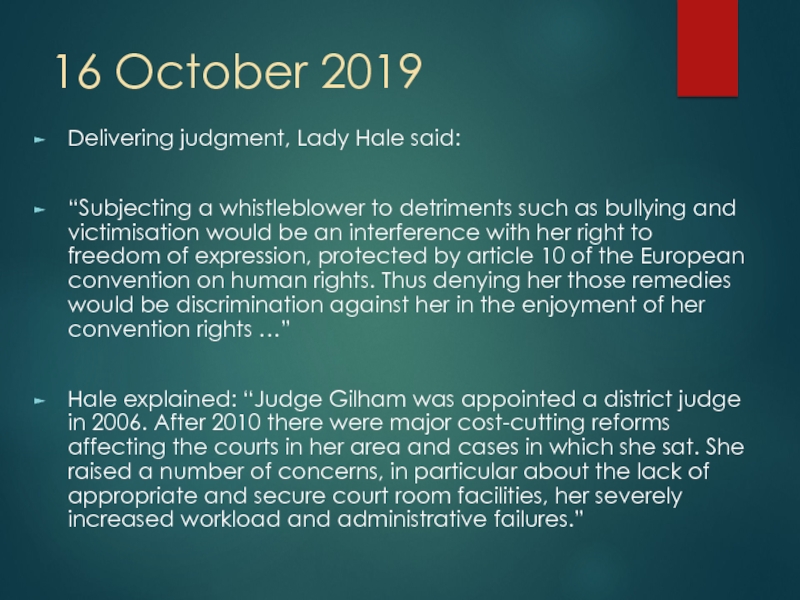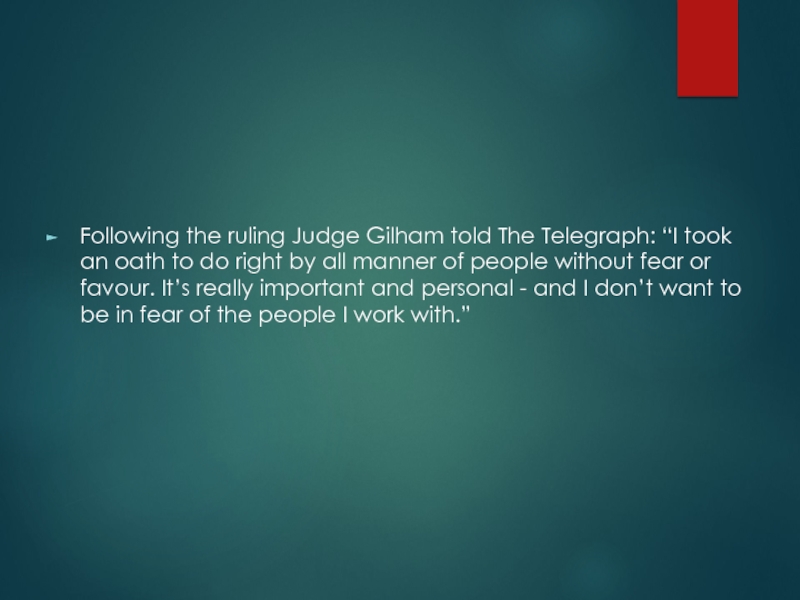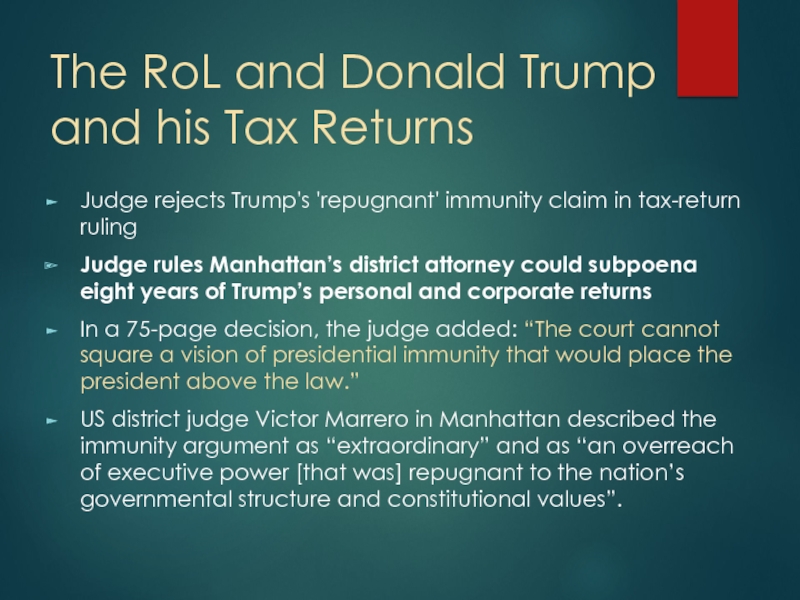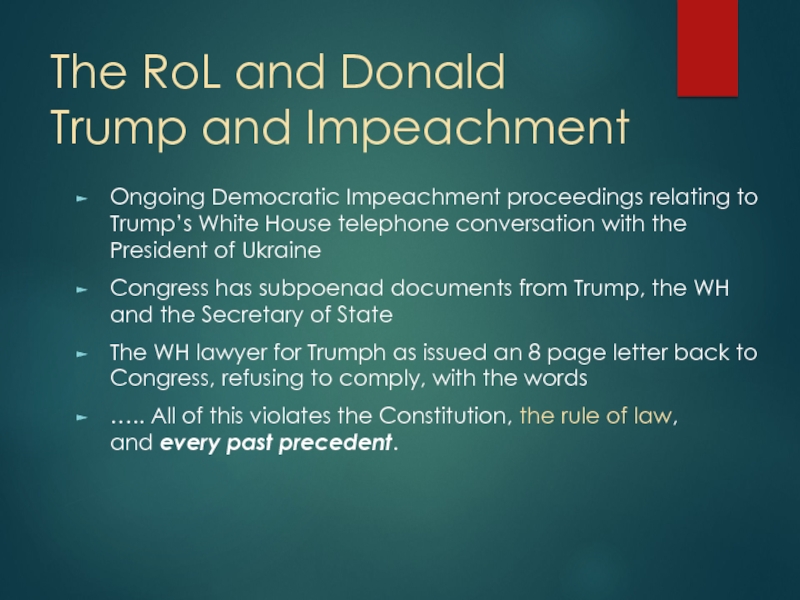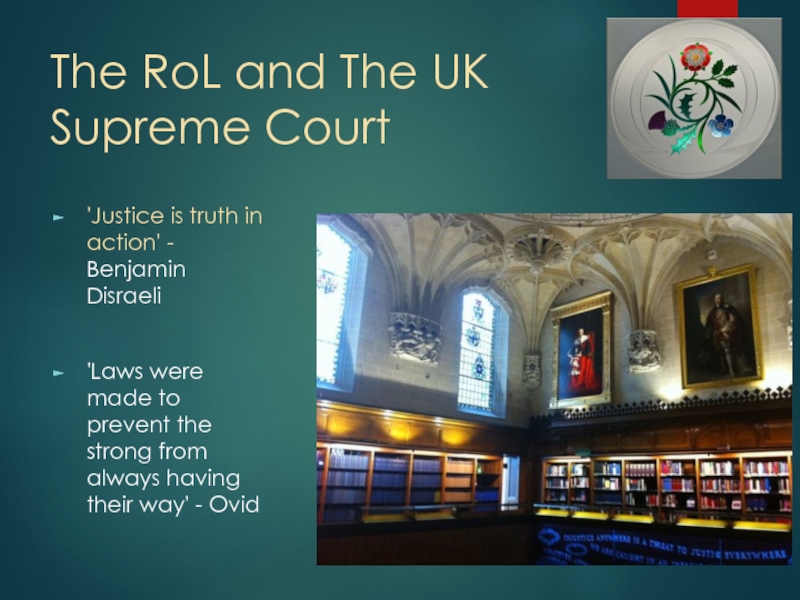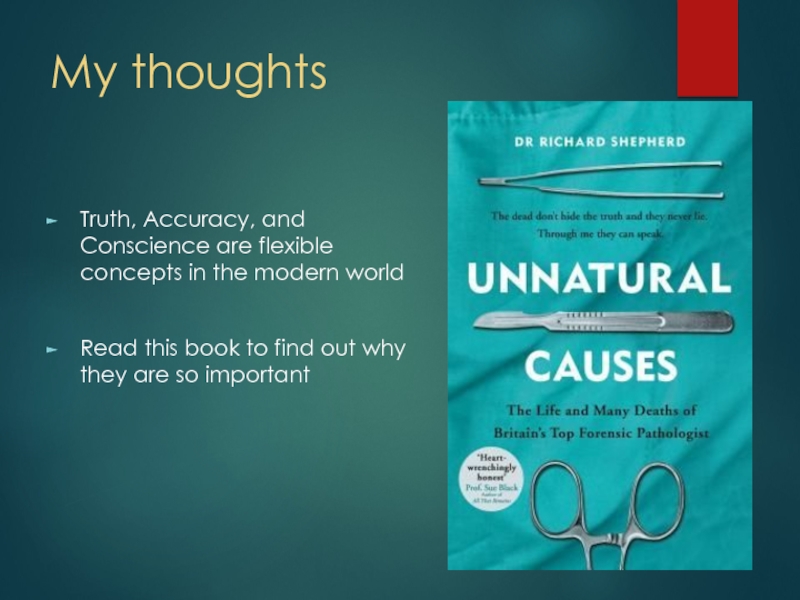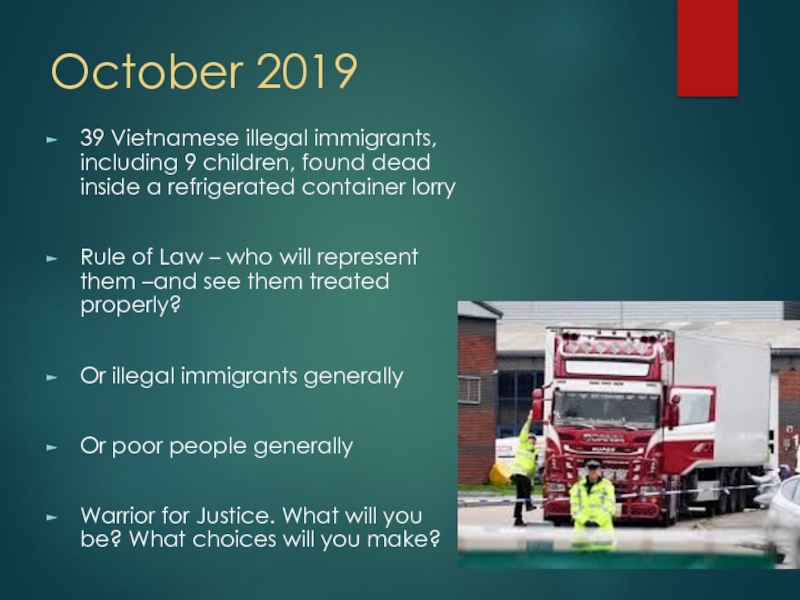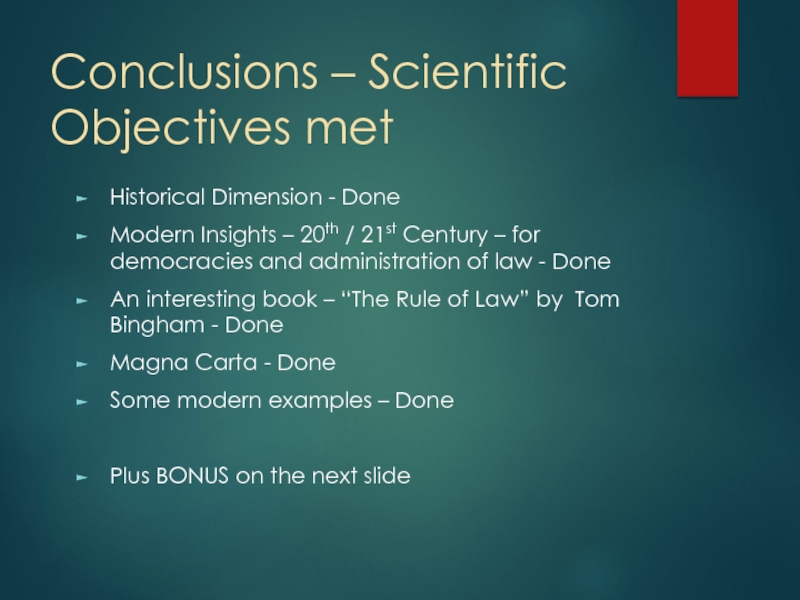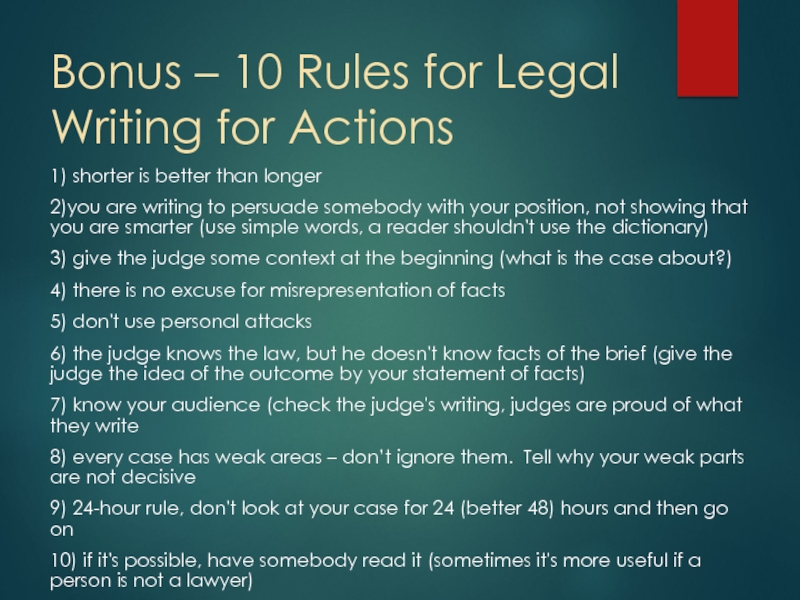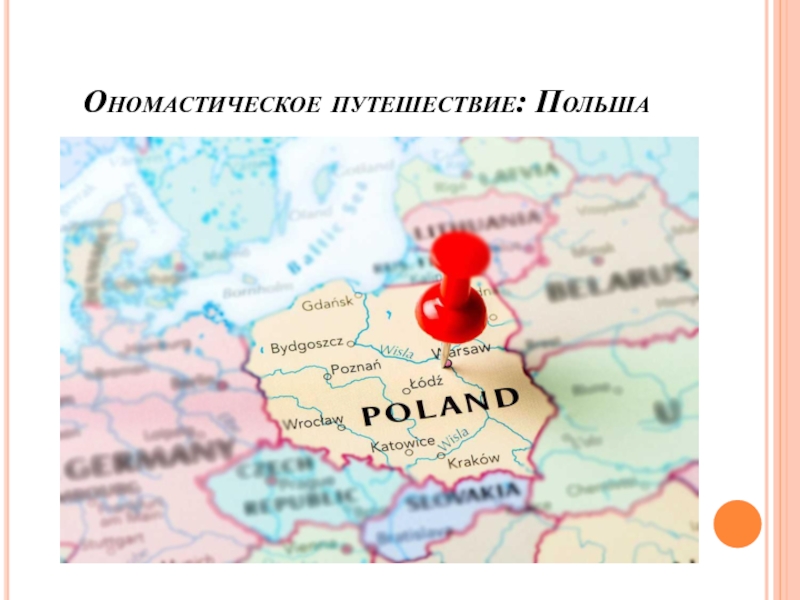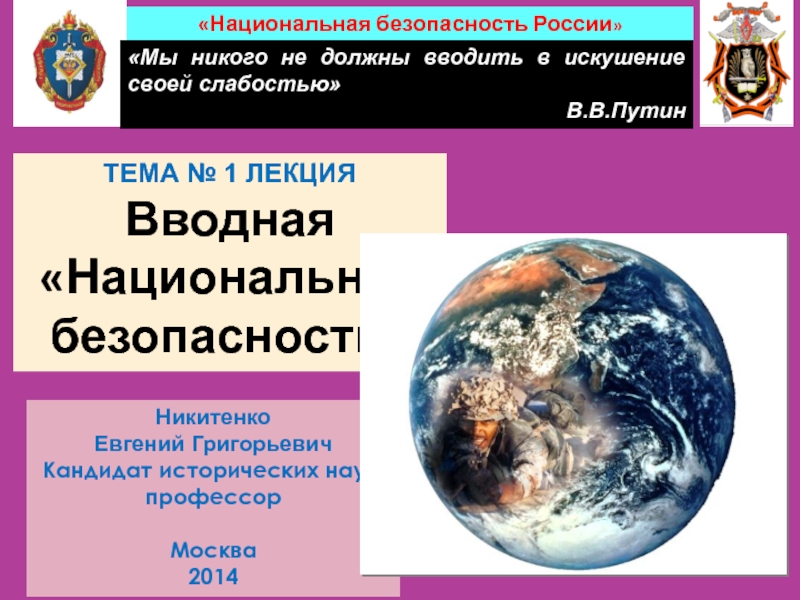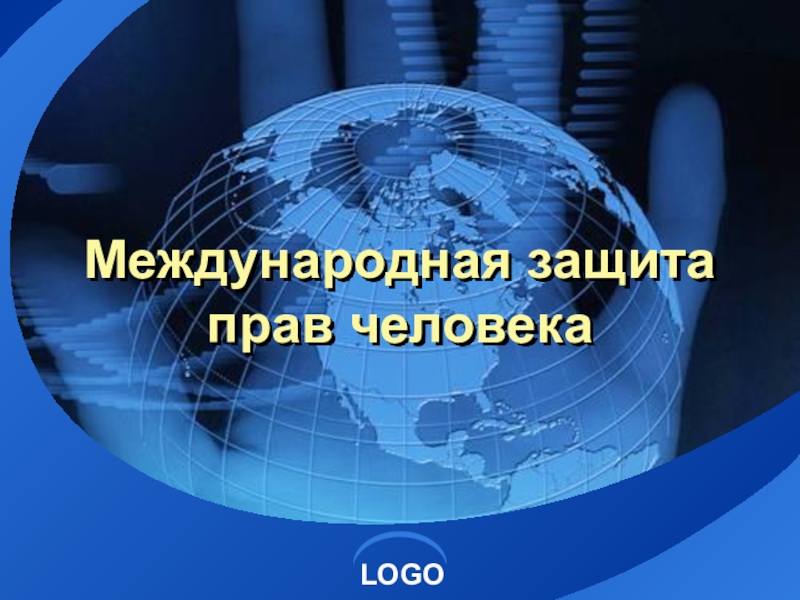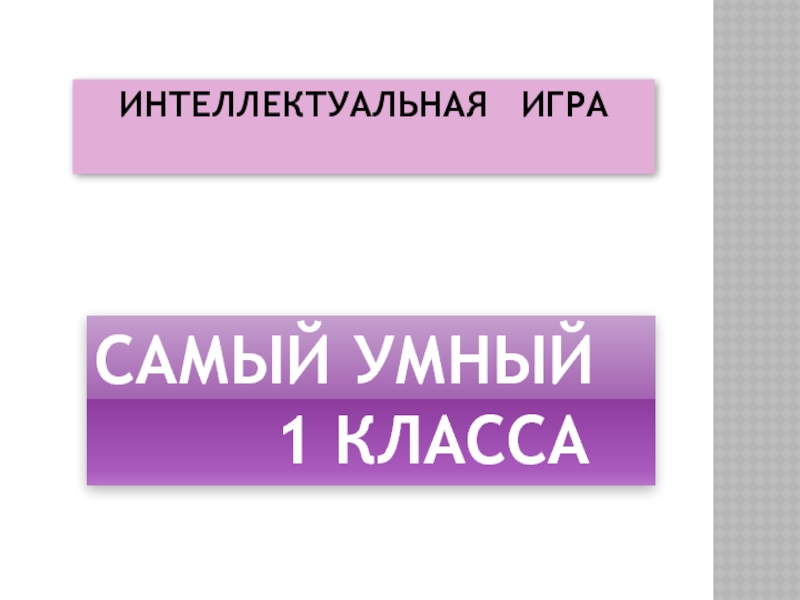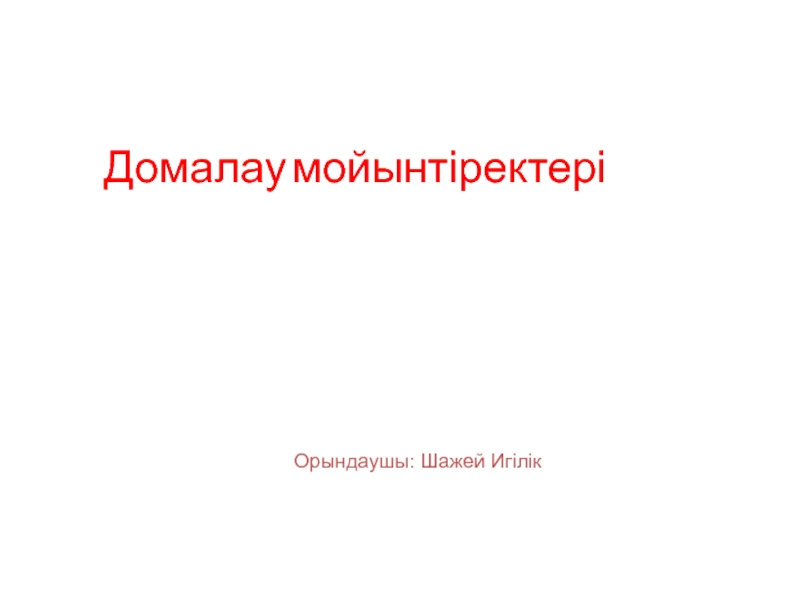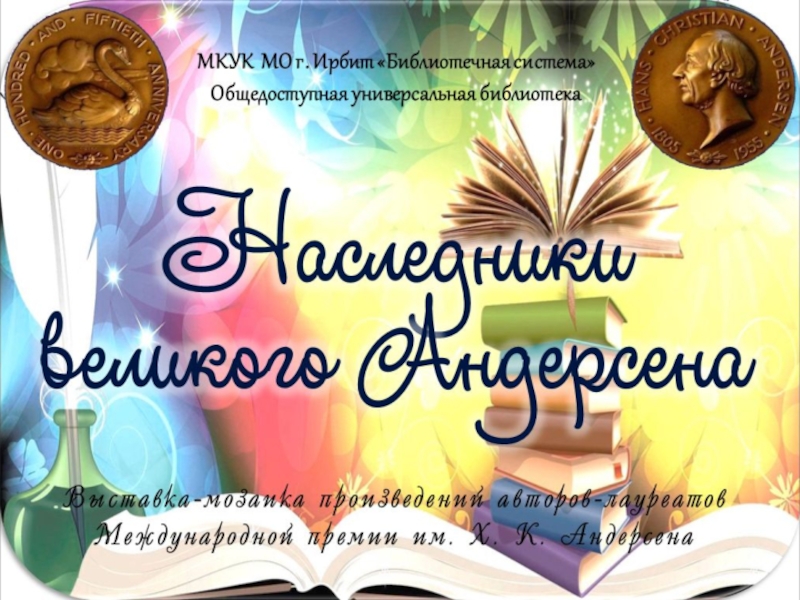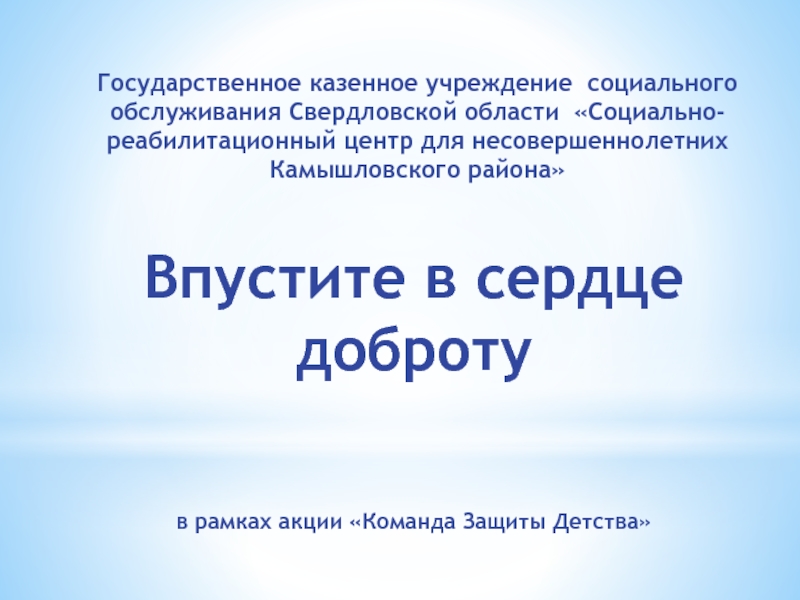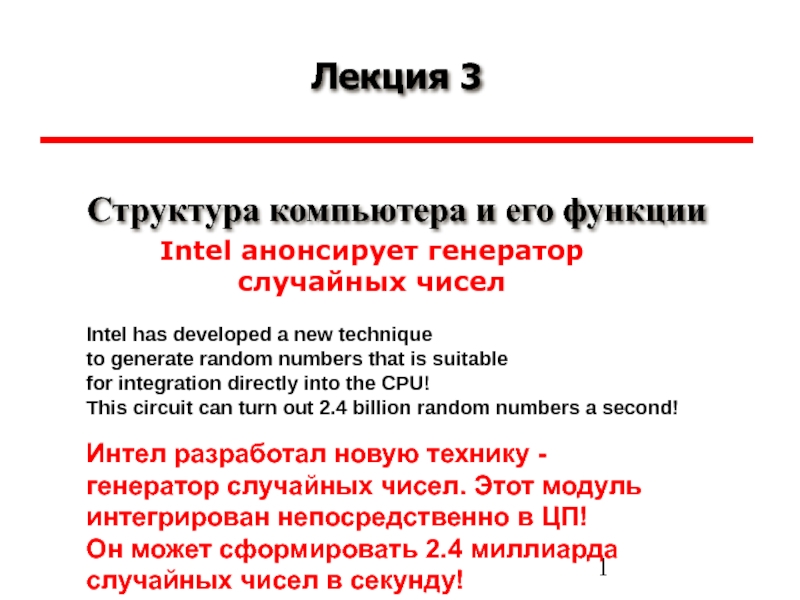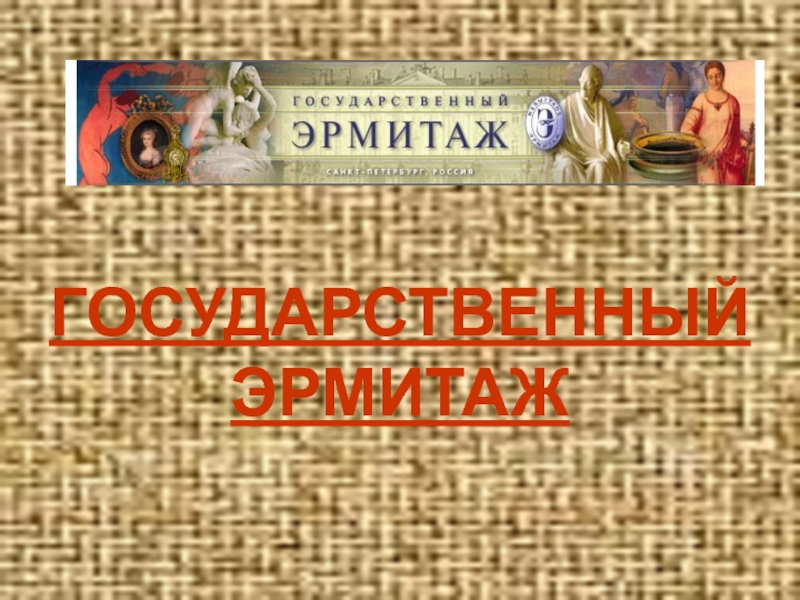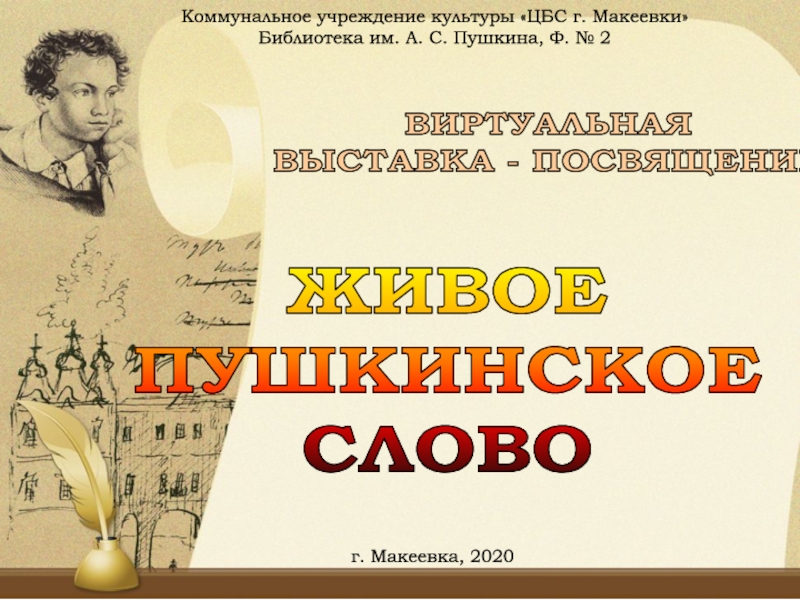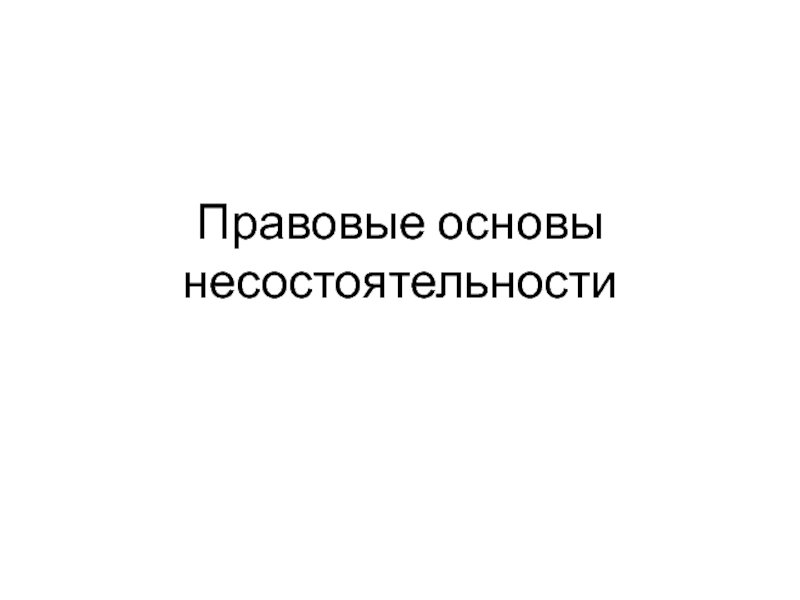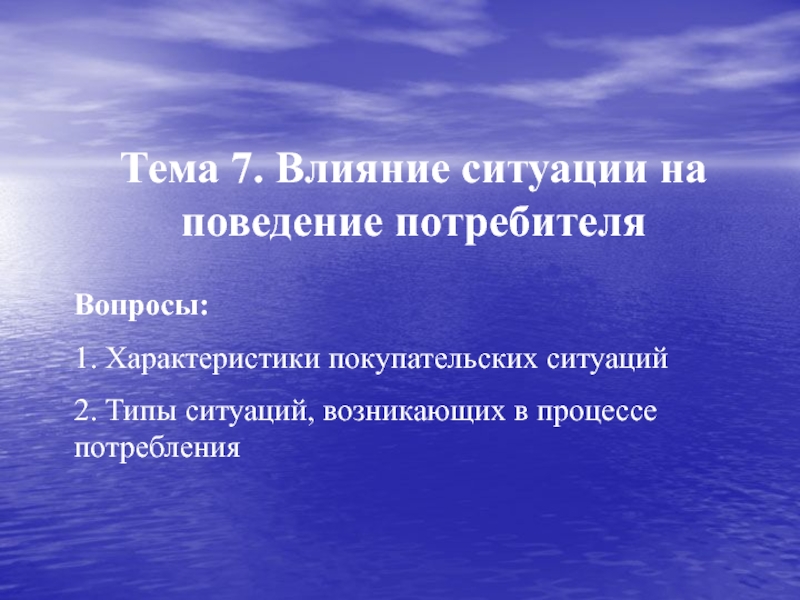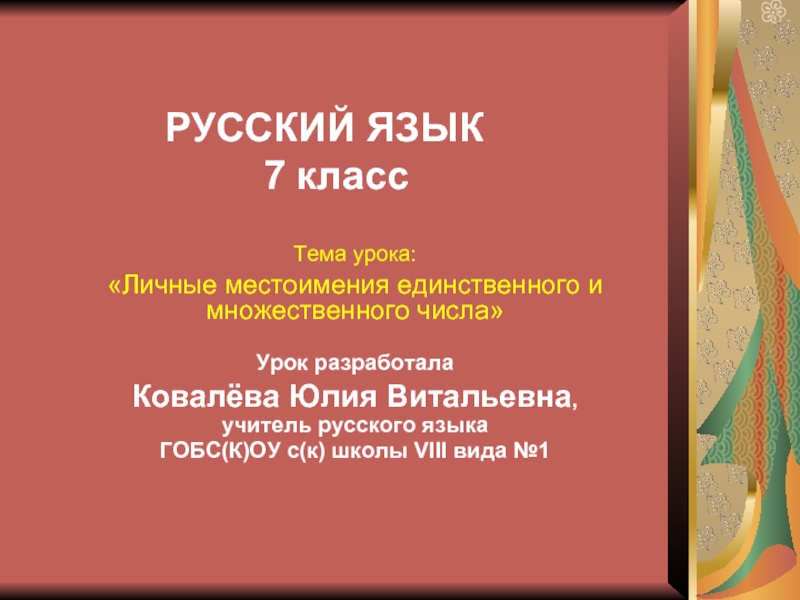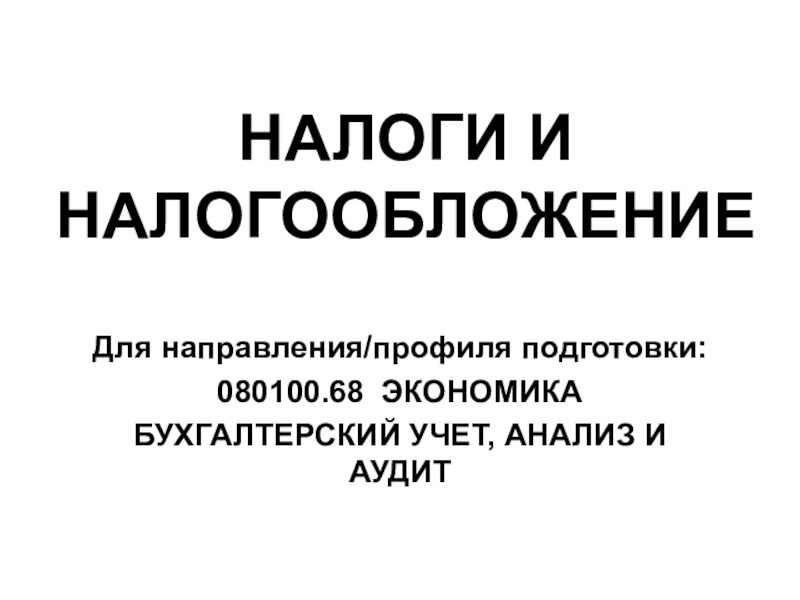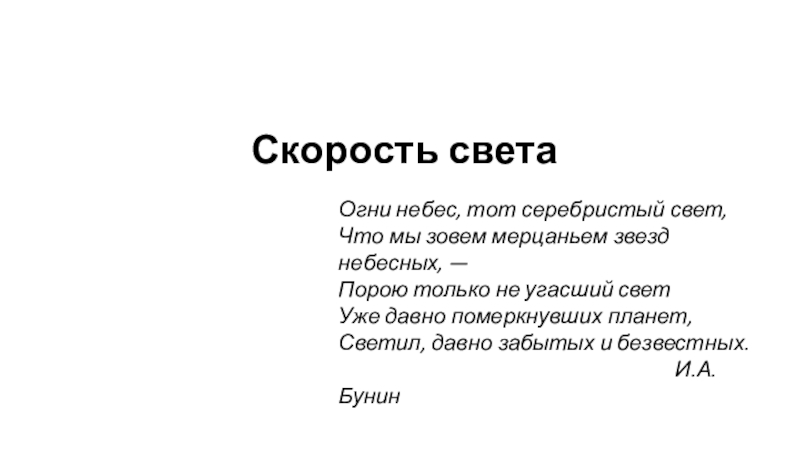Разделы презентаций
- Разное
- Английский язык
- Астрономия
- Алгебра
- Биология
- География
- Геометрия
- Детские презентации
- Информатика
- История
- Литература
- Математика
- Медицина
- Менеджмент
- Музыка
- МХК
- Немецкий язык
- ОБЖ
- Обществознание
- Окружающий мир
- Педагогика
- Русский язык
- Технология
- Физика
- Философия
- Химия
- Шаблоны, картинки для презентаций
- Экология
- Экономика
- Юриспруденция
Professor Charles Goddard, RIBA, FRSA, FCIArb Faculty of International Private
Содержание
- 1. Professor Charles Goddard, RIBA, FRSA, FCIArb Faculty of International Private
- 2. Scientific ObjectivesHistorical DimensionModern Insights – 20th /
- 3. Ancient UK Remains - Cheddar Man, c. 10,000 years ago
- 4. DNA testing – matches to Adrian Targett, who loves locally….
- 5. Even older remains….Anatomically modern humans…Current record –
- 6. Historical dimension to the RoLFirstly, faith based
- 7. Oldest surviving legal code – 2500 BC,
- 8. Code of (King)HammurabiBabylonian Code of Ancient Mesopotamia
- 9. Aristotle – 384-322 BCGreek PhilosopherThe Constitution of
- 10. Common images of JusticeUK Central Criminal CourtSupreme Court of the Russian Federation
- 11. Mosaic representing both the judicial and legislative
- 12. But -Justice in the Classical WorldФемида, or
- 13. 20th Century - OSCE Organisation for Security
- 14. OSCE“Security touches on many aspects of the
- 15. The Rule of Law - OSCEThe concept
- 16. The OSCE’s Office for Democratic Institutions and Human
- 17. Are these all in your understanding of
- 18. Strengthening public administration – example from the UK;
- 19. The rule of law implies that every
- 20. Key Reader (not a Textbook)"It is no
- 21. Why is it such a good book?Well
- 22. New words in Chapter 1 Example of
- 23. Structure of Chapter 1 Key Skill in
- 24. Dicey – Oxford Professor of Law –
- 25. CriticismsForeign comparisons on State Declarations as opposed
- 26. Notable criticisms of the generalities underlying DiceyRaz
- 27. If the RoL is“Meaningless”, should we
- 28. But what does it mean?UK Parliamentary Draftsmen
- 29. Bingham’s view“All persons and authorities in the
- 30. Examples of ExceptionsChildren – the defence of
- 31. Bingham’s 8 Principles of the Rule of
- 32. Bingham’s 12 Milestones in the Development of
- 33. Magna Carta
- 34. Runnymede 1215Here the barons demanded that “Bad”
- 35. 15 June 1215 - 4 Original Copies
- 36. But..2 months later, Annulled by Papal Bull
- 37. But it kept coming back – eg
- 38. The most sweeping deletion of Magna Carta’s
- 39. Magna Carta Today“Magna Carta is a world-class
- 40. IconicBut brands are not just the sum
- 41. Nelson Mandela – referred to Magna Carta
- 42. The modern legal interpretation of Magna CartaJust
- 43. No freeman shall be taken or imprisoned,
- 44. The Human Rights Act 1998The purpose of
- 45. Rights under the Actthe right to lifefreedom
- 46. Is Magna Carta still used in the
- 47. Is Magna Carta still used in the
- 48. Enforcement today?Judges do not enforce Magna Carta
- 49. Judges – a surprising find on the
- 50. Judge Gilham, who was appointed in 2006
- 51. However after blowing the whistle, she claimed
- 52. Слайд 52
- 53. 16 October 2019Delivering judgment, Lady Hale said:
- 54. Following the ruling Judge Gilham told The
- 55. The RoL and Donald Trump and his
- 56. The RoL and Donald Trump and ImpeachmentOngoing
- 57. The RoL and The UK Supreme Court'Justice
- 58. My thoughtsTruth, Accuracy, and Conscience are flexible
- 59. October 201939 Vietnamese illegal immigrants, including 9
- 60. Conclusions – Scientific Objectives metHistorical Dimension -
- 61. Bonus – 10 Rules for Legal Writing
- 62. Скачать презентанцию
Слайды и текст этой презентации
Слайд 1
Professor Charles Goddard, RIBA, FRSA, FCIArb
Faculty of International Private Law,
MSAL
legal culture of modern democraciesСлайд 2Scientific Objectives
Historical Dimension
Modern Insights – 20th / 21st Century –
the Rule of Law as regard democracies and administration of
lawAn interesting book – “The Rule of Law” by Tom Bingham
Food for thought on aspects of this book
Magna Carta
Modern examples
Слайд 5Even older remains….
Anatomically modern humans…
Current record – 300,000 years old
in Morocco – 6 skeletons
What did these people’s “Rule of
Law” look like?Especially - Theft, Mating/Coupling, Murder, dispute resolution
Peopling – in thousands of years,,,,
Слайд 6Historical dimension to the RoL
Firstly, faith based texts, seem to
be c 2000 CE (BC) – some 4000 or so
agoReligious texts – imposition upon Man of the Rules of the Creator
Imposition upon Man of these Rules by people interpreting – and reinterpreting these Rules from these texts
We still have faith based laws and legal systems…
But here we are concerned with secular law
Слайд 7Oldest surviving legal code – 2500 BC, about 4500 years
old
Ancient Sumerian text
51 laws, 32 identified
Some quite expected, others less
so1. If a man commits a murder, that man must be killed.
2. If a man commits a robbery, he will be killed.
19. If a man has cut off another man's foot, he is to pay ten shekels.
25. If a man's slave-woman, comparing herself to her mistress, speaks insolently to her, her mouth shall be scoured out with 1 quart of salt.
Слайд 8Code of (King)Hammurabi
Babylonian Code of Ancient Mesopotamia – 1754 BC,
inscribed in Akkadian on a stone in the shape of
an index finger“Laws of justice which Hammurabi, the wise king, established”
282 Laws, scale of punishments
Law #142: "If a woman quarrel with her husband, and say: "You are not congenial to me," the reasons for her prejudice must be presented. If she is guiltless, and there is no fault on her part, but he leaves and neglects her, then no guilt attaches to this woman, she shall take her dowry and go back to her father's house
Law #229 “If a builder build a house for some one, and does not construct it properly, and the house which he built fall in and kill its owner, then that builder shall be put to death.”
Слайд 9Aristotle – 384-322 BC
Greek Philosopher
The Constitution of the Athenians –
discovered in 1879 on 2 sheets of papyrus in Egypt
– now in the British Museum“ It is better for the law to rule than one of the citizens…..so even the guardians of the law are obeying the law
From which we get the idea of “no one is above the law”
Слайд 11Mosaic representing both the judicial and legislative aspects of the
Rule of Law.
The woman on the throne holds a
sword to chastise (punish) the guilty and a palm branch to reward the meritorious. Glory surrounds her head, and the aegis of Minerva signifies the armour of righteousness and wisdom
Frederick Dielman (1847-1935) designed this mosaic representing Law for the United States Library of Congress, and it was subsequently manufactured in Venice, Italy
Слайд 12But -Justice in the Classical World
Фемида, or rather Themis (Justice),
the second wife of Zeus was NOT blindfolded in classical
times.This is her, in about 350 BC (sadly looking a bit the worse for wear!) – missing her scales and sword
A classical friend of tells me the sword was supposedly for cutting through fiction to get to the facts.....which were then weighed in the scales.
DO NOT ACCEPT WHAT YOU ARE TOLD AT FACE VALUE
Justice is NOT blind(folded), nor is the Sword to dispense Justice. “Google-sniffing”
Слайд 1320th Century - OSCE Organisation for Security and Cooperation in
Europe
Roots in 1950, started in 1973
57 Participating States, representing 1/7th
of the world population - where we also se Democracies and the RoLСлайд 14OSCE
“Security touches on many aspects of the way we live
and are governed. The OSCE's comprehensive view of security covers
three “dimensions”: the politico-military; the economic and environmental; and the human.”“The OSCE's activities cover all three of these areas, from "hard" security issues such as conflict prevention to fostering economic development, ensuring the sustainable use of natural resources, and promoting the full respect of human rights and fundamental freedoms.”
Слайд 15The Rule of Law - OSCE
The concept of rule of
law is a cornerstone of the OSCE's human rights and
democratisation activities. It not only encompasses formal legal frameworks, but also aims at justice based on the full acceptance of human dignity.OSCE participating States continue to require assistance in developing justice systems that guarantee the respect of everyone’s fundamental rights and freedoms in a fair and independent manner.
Слайд 16The OSCE’s Office for Democratic Institutions and Human Rights (ODIHR) supports judicial
and legislative reforms to ensure that judiciaries operate free from
undue influence.ODIHR also promotes institutional reforms to better enable key actors / participants in the criminal justice chain to perform their duties transparently and in compliance with human rights obligations.
ODIHR monitors trials to assess fair trial guarantees and promote reforms based on rule of law principles in the area of criminal, civil and administrative justice.
A number of OSCE field operations work in the area of rule of law, particularly in the following activities:
Слайд 17Are these all in your understanding of the Rule of
Law?
Legislative and judicial reform;
Strengthening the independence of the judiciary;
Strengthening public
administration;Reviewing and helping implement human rights legislation;
Monitoring the work of the judiciary, including prosecution and advocates, to ensure compliance with international human rights and rule of law standards;
Civil trial monitoring;
Capacity-building training for justice sector officials;
Trial monitoring of cases related to war crimes, hate crimes and human trafficking;
Reporting on hate crimes;
Training for judges, prosecutors, defence lawyers and police officers, civic and governmental bodies;
Helping anti-corruption institutions improve public accountability mechanisms;
Promoting participation of ethnic communities in public life;
Helping to ensure proper referral of complaints of human rights violations; and
Contributing to the development of national legal aid systems.
Слайд 19The rule of law implies that every person is subject
to the law, including people who are lawmakers, law enforcement
officials, and judges.In this sense, it stands in contrast to a monarchy or oligarchy where the rulers are held above the law. (Question – what about HMQ Elizabeth II? - The UK is a monarchy, but we have the Rule of Law???)
Lack of the rule of law can be found in both democracies and monarchies, for example, because of neglect or ignorance of the law, and the rule of law is more apt to decay if a government has insufficient corrective mechanisms for restoring it.
Слайд 20Key Reader (not a Textbook)
"It is no exaggeration to say
that Tom Bingham was the greatest judge of our time
– arguably the most significant judicial figure among the long line of notables in the history of the Anglo-Saxon legal systems.“8 Principles to the Rule of Law
Слайд 21Why is it such a good book?
Well written, very “readable”
Excellent
for expanding your vocabulary in legal English – many “strange”
words you wont find in the standard courseboooksMany footnotes linking to cases, all of which are worth looking up and reading
“The Mind is a Fire to be lit, not a Vessel to be filled”
Food for Thought, Discussion, Research
Слайд 22New words in Chapter 1
Example of looking at words
Coining the
expression
Enjoyed a currency
Breach of law
Amenable to
Predominance
Incremental process
Redress
Shorthand Description
Home Secretary
Verbiage
Consensus
Iconoclastic
Draftsmen (plural)
At
MSAL – we discuss these in the seminars every week – building confidence in speaking Слайд 23Structure of Chapter 1
Key Skill in learning – “landscape”
First “coining
of the phrase – with origin in antiquity
Dicey’s 3 meaning
to the RuleAcademic criticisms to Dicey’s work
Broadening the debate, to the point where RoL is almost meaningless (6 examples)
If its meaningless now, should we abandon it? No – and gives 3 reasons why not
So what does it mean – Bingham’s view
Bingham’s Exclusions to his view
Origins of Bingham’s View
Conclusion - Bingham’s comments on view held about law and lawyers – and States where the Bingham view of RoL is not observed. Isn’t it better to put up with such lawyers and law than live in such States?
Слайд 24Dicey – Oxford Professor of Law – 3 meanings to
the RoL (Introduction to the study of the law and
the Constitution 1885)1. If you are to be punished – must be for a proven breach of the established law, established by a Court not an arbitrary tribunal doing the Government’s bidding
2. No one is above the law, and all are subject to same law
3. The general principles are the result of judicial decisions, not Declarations by States
Слайд 25Criticisms
Foreign comparisons on State Declarations as opposed to Judicial Decisions
were incorrect
Underestimated the problems which British citizens faced when seeking
redress from he Government through the courtsFurther criticisms through the decades by jurisprudential scholars….
Слайд 26Notable criticisms of the generalities underlying Dicey
Raz – Shorthand for
the positive aspects of a political system
Finnis – name given
to a legal system in good shapeShklar – Phrase is now almost meaningless due to ideological oversuse and abuse
Caruthers – Uncertainty as to what it means
Waldron – little more than “Hurrah for our side”
Tamahana – rampant divergence of understandings, analogous to a notion of “good”. Something we all agree on as being something we want, but different ideas as to what it is
Слайд 27 If the RoL is“Meaningless”, should we abandon it as
an idea?
No – 3 reasons given
1. Regularly referred to
and quoted by Judges – especially when they are Supreme Court / Appeal Court Judges, these are not just mere words2. The RoL appears now in many international documents – eg Universal Declaration of Human Rights
3. the RoL is no also in British Statutes, eg the Constitutional Reform Act 1995 – s17(1) requires the Lord Chancellor to respect the Rule of Law and defend the independence of the Judges
Слайд 28But what does it mean?
UK Parliamentary Draftsmen did NOT define
it
Probably because it is best left to Judges to decide
in a particular circumstanceBecause its now in the Statutes, it is now pleaded as a defence against the improper exercise of authority (including in Judicial Review)
What does Bingham think – one of the foremost Judges of our time?
Слайд 29Bingham’s view
“All persons and authorities in the State, whether public
or private, should be bound by – and entitled to
the benefit of laws publicly made – taking effect (generally) in the future and publicly administered in the Courts.”“Not comprehensive, there are exceptions”
“but any deviation from the public conduct of the case requires close consideration and clear justification
Слайд 30Examples of Exceptions
Children – the defence of infancy
Prisoners – denied
freedoms
The mentally ill – the defence of being incapable of
forming the mens reaСлайд 31Bingham’s 8 Principles of the Rule of Law
1 – The
Law must be accessible, and so far as possible, intelligible,
clear and predictableII - Questions of legal right and liability should ordinarily be resolved by application of law and not the exercise of discretion
III - Laws of the land should apply equally to all, save to the extent that objective differences justify differentiation
IV – Law must afford adequate protection of fundamental human rights
V - Means must be provide for resolving, without prohibitive cost or inordinate delate, bona fide disputes which the parties themselves are unable to resolve
VI – Ministers and Public Officers at all levels must exercise the powers conferred upon them reasonably in good faith, for the purposes for which powers were conferred and without exceeding the limit of those powers (Judicial Review)
VII - Adjudicative procedures provided by the State should be fair. The Rule of Law would seem to require no less.
VIII - The Rule of Law requires compliance by the State with its obligations in international law – the law whether deriving from treaty or international custom and practice governs the conduct of nations.
Слайд 32Bingham’s 12 Milestones in the Development of the RoL
(1) Magna
Carta 1215
(2) Habeas corpus: the challenge to unlawful detention
(3) The abolition of torture
(4) The Petition of Right 1628
(5) Sir Matthew Hale’s resolutions
(6) The Habeas Corpus Amendment Act 1679
(7) The Bill of Rights 1689 and the Act of Settlement 1701
(8) The Constitution of the United States of America
(9) The French Declaration of the Rights of Man and the Citizen 1789
(10) The American Bill of Rights
(11) The law of war
(12) The Universal Declaration of Human Rights
Слайд 34Runnymede 1215
Here the barons demanded that “Bad” King John sign
a document called the Magna Carta guaranteeing them certain rights.
By signing the document, King John agreed to do his duty as King of England, upholding the law and running a fair government. In return, the barons agreed to stand down and surrender London.
Слайд 3515 June 1215 - 4 Original Copies of the 1215
Magna Carta exist
Lincoln Cathedral
Salisbury Cathedral
British
Museum
British Museum
800 year anniversary exhibition
– brought them together Слайд 36But..2 months later, Annulled by Papal Bull 24 August 1215
John
applied to have it annulled - There were good grounds
to do so, since it was extracted from the King by duress. Although Magna Carta was later reissued, only a few sentences remain on the statute book today.Слайд 38The most sweeping deletion of Magna Carta’s clauses from the
statute book took place in 1863. 17 of the clauses
were considered to be obsolete.Слайд 39Magna Carta Today
“Magna Carta is a world-class brand. It stands
for human rights and democracy. It stands for trial by
jury. It stands for free speech, the rule of law and personal liberty.”Except the original 1215 version doesn’t mention any of these things !
Even in translation!
Instead, Magna Carta has quite a bit to say about fish, weirs and river banks, about taxes and debts – but it remains this “brand” about what the Law really means
Слайд 40Iconic
But brands are not just the sum of their parts.
(Lovers of Words will recognise the power of words to
summon up more meaning than just definitions)To most people, Coca-Cola means a lot more than sweetened fizzy water with added natural flavouring.
And Magna Carta is similarly iconic: regardless of what it says on the parchment, it enjoys instant recognition as the most important legal document in the common law world.
Слайд 41Nelson Mandela – referred to Magna Carta to defend his
life
Put on trial for his life in 1964, Mandela declined
to give evidence in his defence, but chose instead to make a statement from the dock‘The Magna Carta, the Petition of Rights [sic] and the Bill of Rights are documents which are held in veneration by democrats throughout the world.’ His use of Magna Carta, with reference to the British parliamentary and legal systems, purposefully aligned him with the ideals of Western liberal democracy
The statement took three hours to deliver and is considered a pivotal moment in the history of the development of South African democracy.
Слайд 42The modern legal interpretation of Magna Carta
Just three clauses of
that statute remain law in England and Wales today.
Clause
1 provides that ‘the Church of England shall be free’. Clause 9 promises that ‘the City of London shall have all the old liberties and customs’ that it had before.
But the best-known remnant is clause 29 of the later versions. it says:
Слайд 43No freeman shall be taken or imprisoned, or (deprived) of
his freehold, or liberties, or free customs, or be outlawed,
or exiled, or any other wise destroyed; nor will we not pass upon him, nor condemn him, but by lawful judgment of his peers, or by the law of the land. We will sell to no man, we will not deny or defer to any man either justice or right.Language evolved and is a fundamental component of various Declarations of Human Rights – and subsequent enactments
Слайд 44The Human Rights Act 1998
The purpose of this legislation was
to incorporate into United Kingdom law the rights and freedoms
guaranteed under the European Convention on Human Rights (1953).It enabled British courts to enforce the Convention without referring to the European Court in Strasbourg.
The Act repeats verbatim the Articles of the European Convention, and in so doing re-establishes in British law the ideals of civil liberty inspired by Magna Carta.
Article 6(1) reiterates clause 40 of the Charter, that justice should not be delayed, while Article 5, providing that, ‘No one shall be deprived of his liberty save … in accordance with a procedure prescribed by law’, echoes clause 39 that ‘No free man shall be seized or imprisoned … except by the lawful judgment of his equals or by the law of the land’.
Слайд 45Rights under the Act
the right to life
freedom from torture and
degraded treatment
freedom from slavery and forced labour
the right to liberty
the
right to a fair trialthe right not to be punished for something that wasn't a crime when you did it
the right to respect for private and family life
freedom of thought, conscience and religion
freedom of expression
freedom of assembly and association
the right to marry or form a civil partnership and start a family
the right not to be discriminated against in respect of these rights and freedoms
the right to own property
the right to an education
the right to participate in free elections
Слайд 46Is Magna Carta still used in the courts?
The second sentence
of chapter 29 was cited by a High Court judge
as recently as 2007.Quoting Sir James Holt’s resonant translation (1965) ‘to no one will we sell, to no one will we deny or delay right or justice’, Mr Justice Munby complained about the time the courts had taken to hear a housing claim, expressing the view that ‘the potential delay here amounted to a denial of justice in the sense in which that phrase is used in Magna Carta’.
Warming to his theme, Munby said there were ‘some principles that ring down the centuries’. In this respect, he continued, the message of Magna Carta was ‘timeless’.
Слайд 47Is Magna Carta still used in the courts?
the courts of
England and Wales have referred to Magna Carta in around
160 reported judgments over a period of some 450 years:not a single modern English case that was decided on the strength of Magna Carta alone.
Litigants-in-person – non-lawyers – tend to invest Magna Carta with more weight than it can carry.
In 2013, a man acquitted of growing cannabis sought compensation from Scottish police and prosecutors for time he had spent on remand. David Watson relied on Magna Carta to support his claim that he was not bound by laws to which he had not consented. A Scottish judge had no difficulty in finding no basis for that claim.
Слайд 48Enforcement today?
Judges do not enforce Magna Carta today because its
terms are too broad to be applied by the courts.
It is all very well to say that justice delayed is justice denied.
But how long does the delay have to be for it to amount to an injustice?
Although some civil claims must now be lodged within a matter of weeks, there is no statute of limitations in criminal cases.
Anthony Sawoniuk, a Nazi war criminal, was jailed at the Old Bailey in 1999 for murdering Jews in 1942. Roland Peter Wright, a former headmaster, was imprisoned in 2014 for abusing pupils between 1959 and 1970.
Were such delays sufficiently long to render those convictions unjust?
Слайд 49Judges – a surprising find on the RoL today
Judges, like
clerics, are deemed to be “officeholders” and are not therefore
entitled to the safeguards granted to whistleblowers under the Employment Rights Act to make disclosures in the public interest.Since the 1701 Act of Settlement, judges have been deemed to hold their office “during good behaviour”.
In order to guarantee judicial independence, they can be removed only because of misbehaviour or inability to perform their duties.
Is Whistleblowing “misbehaviour”?
Слайд 50Judge Gilham, who was appointed in 2006 and sat at
Warrington County Court in Cheshire, says she was "treated detrimentally
as a result of raising concerns about systemic failings in the court administration".She then blew the whistle about bullying, lack of appropriate and secure courtroom accommodation, the severely increased workload and administrative failures.
She claimed that her complaints were “qualifying disclosures” under section 43B of the Employment Rights Act 1996 as they were about a failure to comply with legal obligations, that miscarriages of justice were likely, and that health and safety was being or was likely to be endangered. In other words, she was not misbehaving.
Judge Gilham argued that she was entitled to protection due her status as a whistle-blower.
Слайд 51However after blowing the whistle, she claimed she was seriously
bullied, ignored and undermined by her fellow judges and court
staff and suffered a breakdown as a result.She took her complaints to an Employment Tribunal – is she a worker, or does her position as a Judge – a Crown appointed Officer, mean she is not protected?
Слайд 5316 October 2019
Delivering judgment, Lady Hale said:
“Subjecting a whistleblower
to detriments such as bullying and victimisation would be an
interference with her right to freedom of expression, protected by article 10 of the European convention on human rights. Thus denying her those remedies would be discrimination against her in the enjoyment of her convention rights …”Hale explained: “Judge Gilham was appointed a district judge in 2006. After 2010 there were major cost-cutting reforms affecting the courts in her area and cases in which she sat. She raised a number of concerns, in particular about the lack of appropriate and secure court room facilities, her severely increased workload and administrative failures.”
Слайд 54
Following the ruling Judge Gilham told The Telegraph: “I took
an oath to do right by all manner of people
without fear or favour. It’s really important and personal - and I don’t want to be in fear of the people I work with.”Слайд 55The RoL and Donald Trump and his Tax Returns
Judge rejects
Trump's 'repugnant' immunity claim in tax-return ruling
Judge rules Manhattan’s district
attorney could subpoena eight years of Trump’s personal and corporate returnsIn a 75-page decision, the judge added: “The court cannot square a vision of presidential immunity that would place the president above the law.”
US district judge Victor Marrero in Manhattan described the immunity argument as “extraordinary” and as “an overreach of executive power [that was] repugnant to the nation’s governmental structure and constitutional values”.
Слайд 56The RoL and Donald Trump and Impeachment
Ongoing Democratic Impeachment proceedings
relating to Trump’s White House telephone conversation with the President
of UkraineCongress has subpoenad documents from Trump, the WH and the Secretary of State
The WH lawyer for Trumph as issued an 8 page letter back to Congress, refusing to comply, with the words
….. All of this violates the Constitution, the rule of law, and every past precedent.
Слайд 57The RoL and The UK Supreme Court
'Justice is truth in
action' - Benjamin Disraeli
'Laws were made to prevent the strong
from always having their way' - OvidСлайд 58My thoughts
Truth, Accuracy, and Conscience are flexible concepts in the
modern world
Read this book to find out why they are
so importantСлайд 59October 2019
39 Vietnamese illegal immigrants, including 9 children, found dead
inside a refrigerated container lorry
Rule of Law – who will
represent them –and see them treated properly?Or illegal immigrants generally
Or poor people generally
Warrior for Justice. What will you be? What choices will you make?
Слайд 60Conclusions – Scientific Objectives met
Historical Dimension - Done
Modern Insights –
20th / 21st Century – for democracies and administration of
law - DoneAn interesting book – “The Rule of Law” by Tom Bingham - Done
Magna Carta - Done
Some modern examples – Done
Plus BONUS on the next slide
Слайд 61Bonus – 10 Rules for Legal Writing for Actions
1) shorter
is better than longer
2)you are writing to persuade somebody with
your position, not showing that you are smarter (use simple words, a reader shouldn't use the dictionary)3) give the judge some context at the beginning (what is the case about?)
4) there is no excuse for misrepresentation of facts
5) don't use personal attacks
6) the judge knows the law, but he doesn't know facts of the brief (give the judge the idea of the outcome by your statement of facts)
7) know your audience (check the judge's writing, judges are proud of what they write
8) every case has weak areas – don’t ignore them. Tell why your weak parts are not decisive
9) 24-hour rule, don't look at your case for 24 (better 48) hours and then go on
10) if it's possible, have somebody read it (sometimes it's more useful if a person is not a lawyer)
